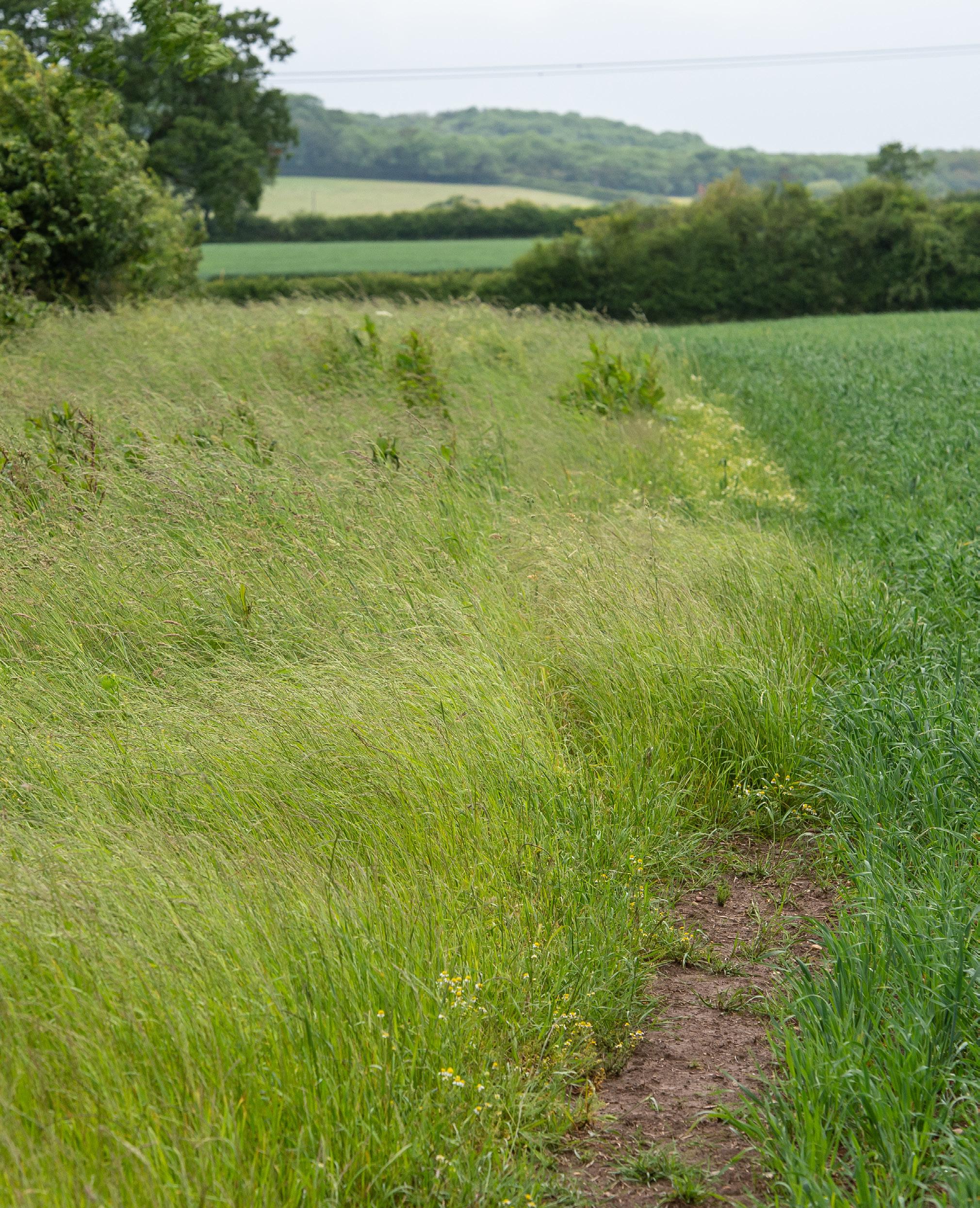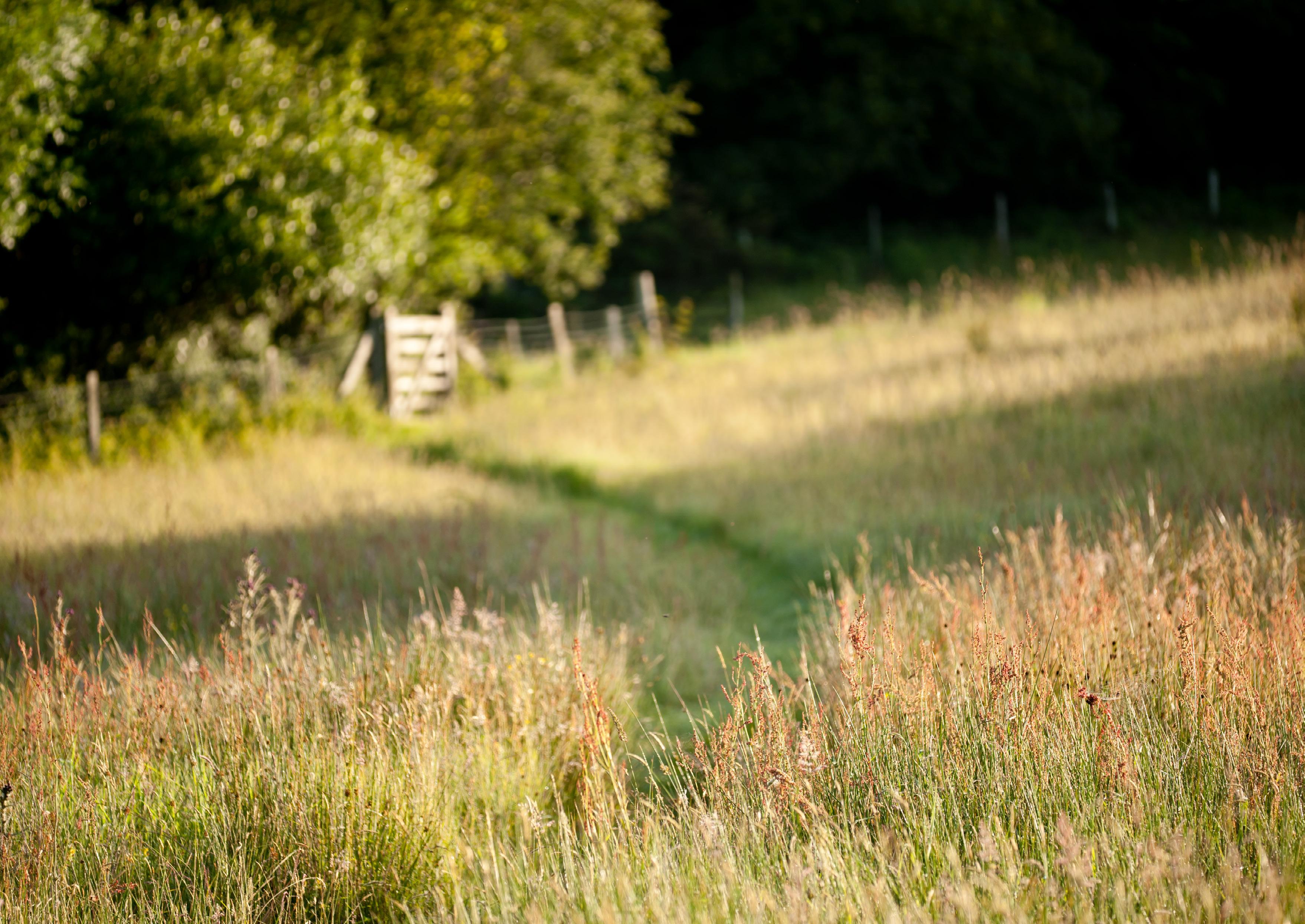

Food and Farming in the Nature and Climate Crises
How farming with nature can support farmers, people and the planet
The Wildlife Trusts’ Vision for the Future of Farming in England
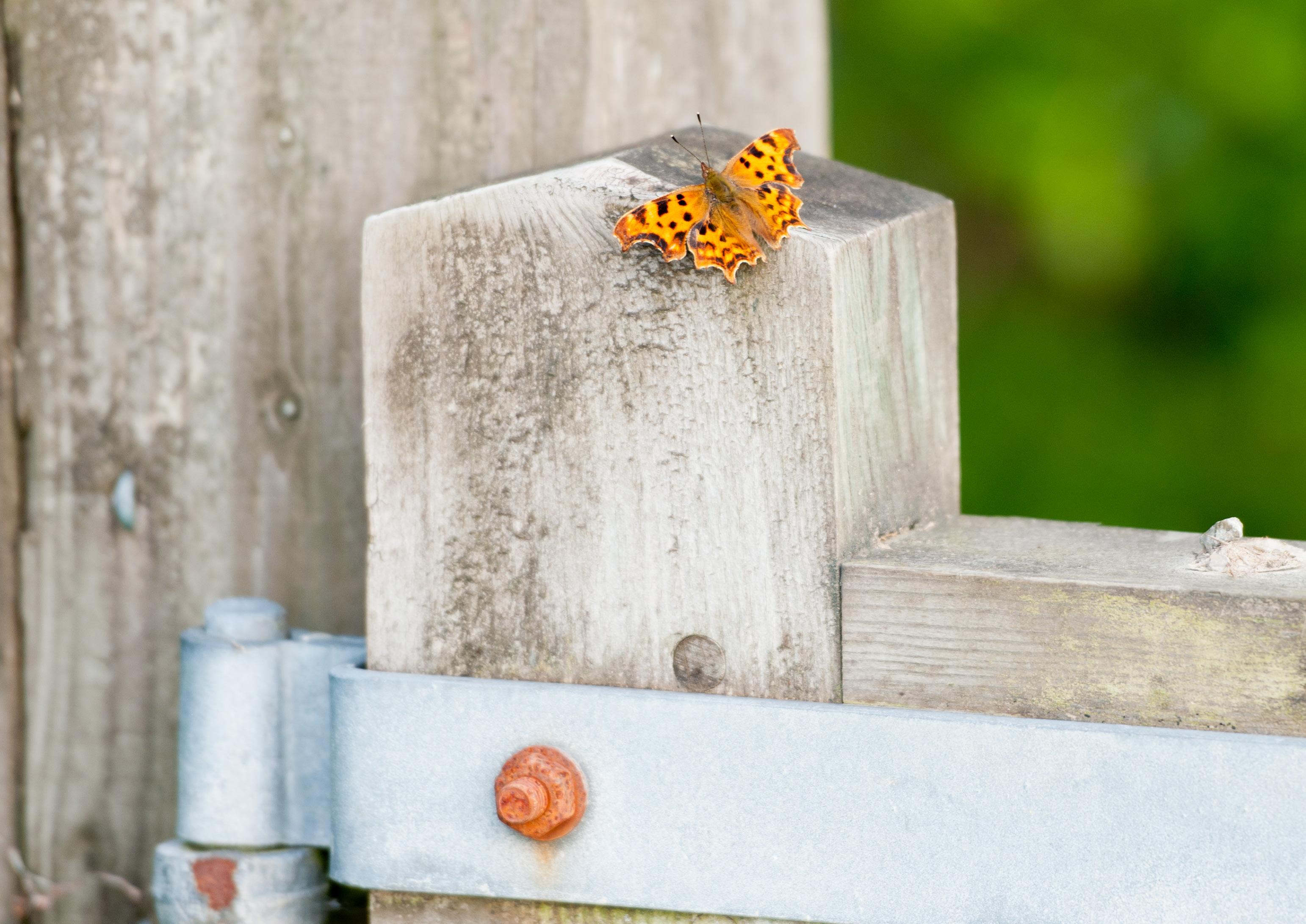

Foreword
With almost 70% of land in England used for farming, where and how we produce food has a huge impact on nature’s recovery. It is no understatement to say that the recovery of nature at scale depends on the choices we make for the future of farming, yet over the past 50 years we have witnessed that increasingly intensive agricultural practices have arguably been the most destructive force against nature.
This is not the fault of farmers, but rather the result of a broken food system. A system which follows a doctrine of maximising output from huge monocultures and narrow breed stock and fails to properly account for the value of nature. A system which is overly reliant on vast quantities of expensive and toxic pesticides and synthetic fertilisers, most of which ends up in our soils and rivers polluting our wildlife. A system which uses huge areas of high-quality agricultural land to grow food to feed to animals, and which is one of the most vulnerable sectors to the effects of a changing climate.
Rather than drive nature’s recovery, the way land has largely been managed to produce food has contributed to the very biodiversity and climate crises that undermine its long term viability. We cannot continue to drive farming under the current doctrine of maximising output if we expect to put nature into recovery and secure sustainable food production into the future.
There is a better way.
Many farmers already see nature as central to their farming practice, and are adopting more sustainable approaches to producing food from the land. Progressive land managers are proving that not only can farming be part of the solution to the nature and climate crises, but that bringing nature back into farmed systems is key to underpinning prosperous and resilient farming businesses.
There is huge scope for positive change in the agricultural sector if nature-friendly farming is adopted at scale, with the potential for farming to play a critical role in securing nature and climate recovery, and for nature-based economies to provide opportunities for growth and rural innovation – but it requires system change.
We need a radical change in farm and food systems, with a fundamental shift in our attitudes to our food and to farming with nature. The Wildlife Trusts believe that there must be a fundamental shift away from industrial agricultural practices towards an approach which sees farming and the environment as mutually beneficial and interdependent.
Here, we set out our vision for the future of farming looking ahead to 2050, setting out how thriving and resilient farm businesses can produce healthy food sustainably alongside nature’s recovery, whilst ensuring food security in a nature & climate crisis.
Chief Executive of The Wildlife Trusts

The Wildlife Trusts vision for food and farming
Our vision of farming by 2050 is a profitable, resilient sector producing high-quality, nutritious food for people using sustainable practices underpinned by a thriving natural environment.
Nature will be in recovery on land, in our freshwaters, and out at sea, with farmers and land managers rewarded for taking action for the environment.
Restored ecosystems will play a valued role in supporting farmers adapt to a changing climate, and provide rural enterprises with new opportunities and income streams.
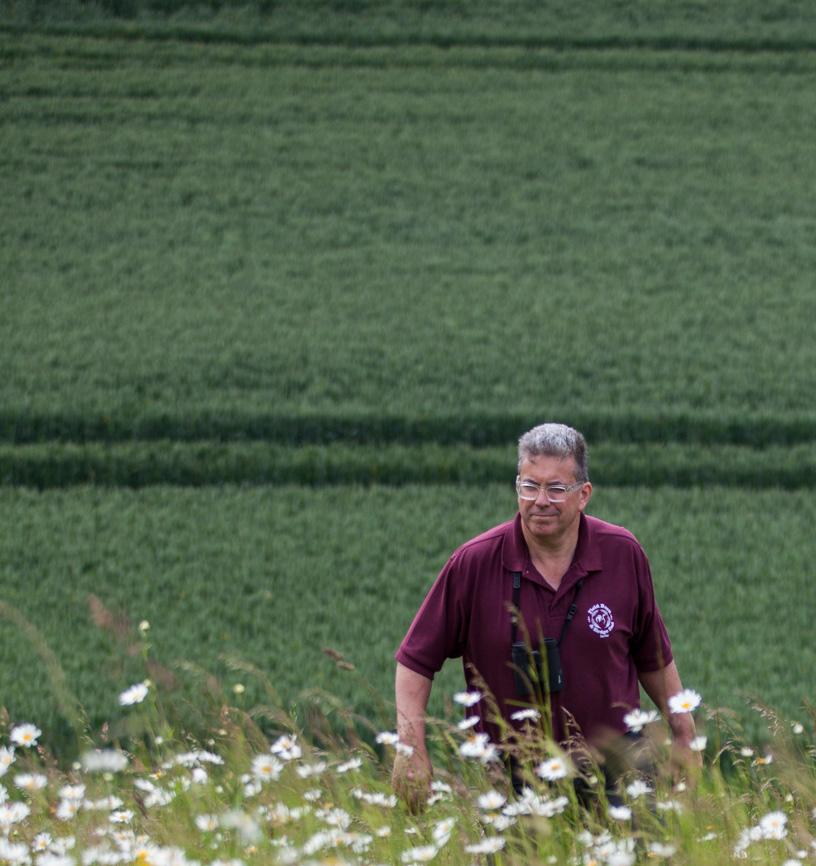
Working with farmers
The Wildlife Trusts work closely with farmers, landowners, businesses, and local communities to ensure that transformative change in the food and farming sector delivers for wildlife and people.
We strongly advocate that any changes in farming systems must not be done to farmers, but with farmers. Their expertise, dedication, experience and ownership of place will be vital to shaping a sustainable future.
We also work closely with industry, researchers, education providers, and progressive businesses to promote awareness of the importance of changes in food systems for nature and climate, embed support for sustainable farm businesses throughout the supply chain, and advise on models for environmental delivery.
Regionally sensitive approach
Agriculture looks very different across the various regions and counties in England, and there is not a ‘one size fits all’ approach.
From horticulture in the fens and dairy production in the southwest, to extensive livestock grazing in the uplands, the shift to sustainable land management will look different in each place.
As a network of grassroots organisations firmly rooted in local communities, The Wildlife Trusts are uniquely placed to catalyse a transformation in our farming systems, with individual Wildlife Trusts working locally to tailor our approach in a regionally sensitive way.

Farming Goals
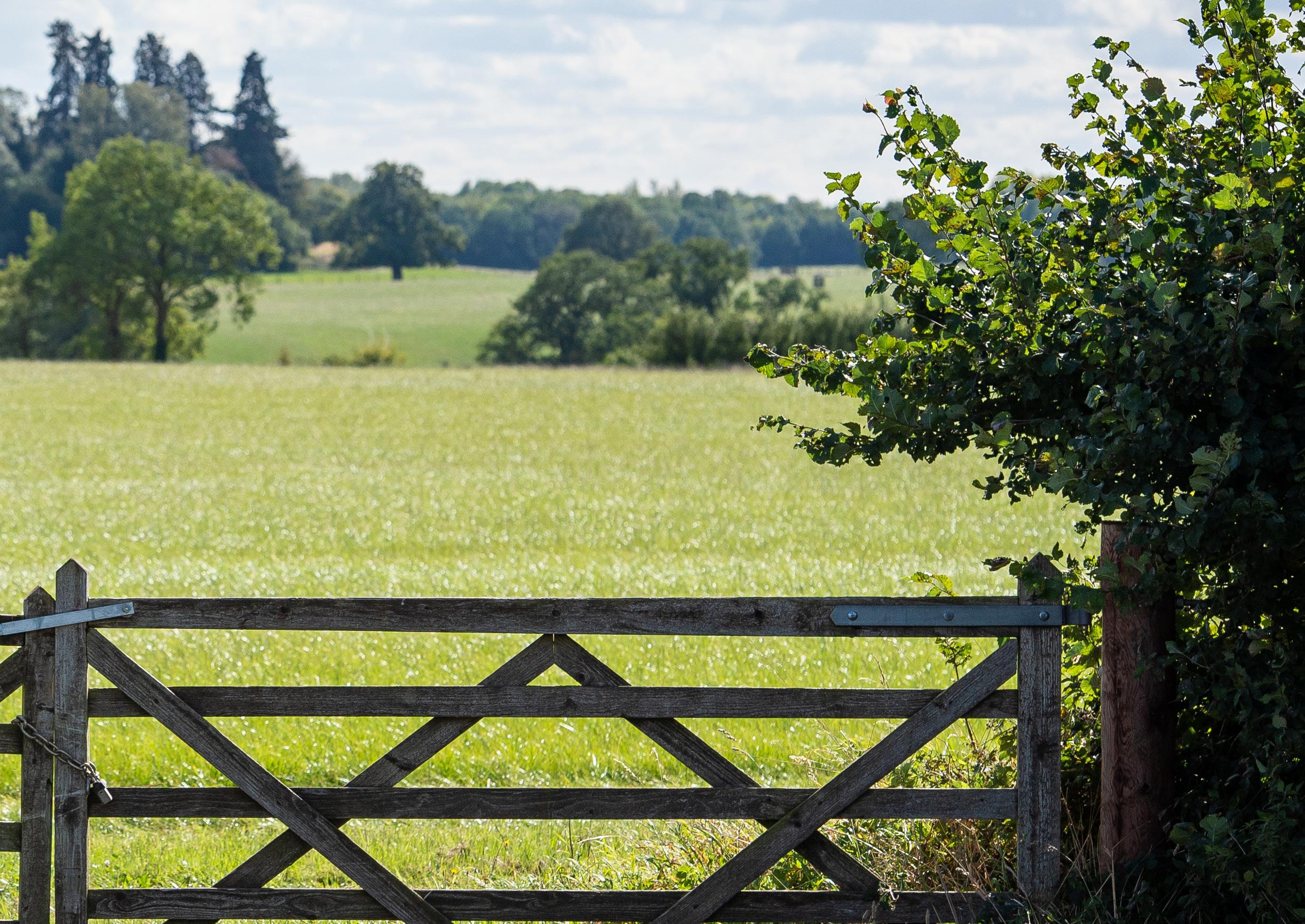
IN THIS VISION, we set out the five key goals we believe should steer the direction and outcomes of the farming sector in order to restore wildlife and embed more sustainable, more resilient, and more profitable systems for farmers.
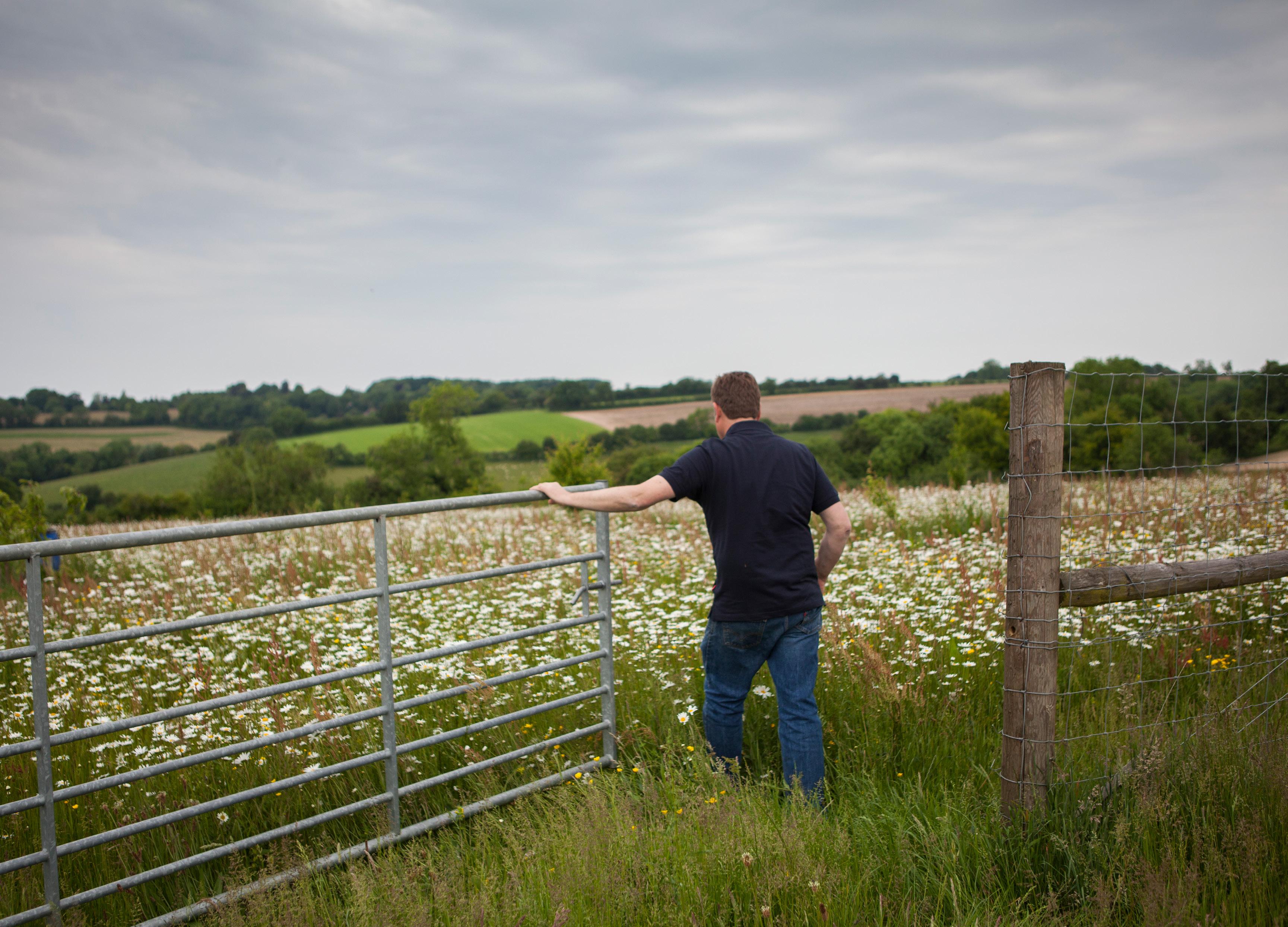
All farmed land in England is operating under agroecological and regenerative principles
Agroecological and regenerative farming practices must be adopted at scale to enable climate-resilient and nature-friendly food production.
Sustainable farming is dependent on healthy and functional ecosystems, particularly those of the soil. Thriving nature on farm is essential to maintain the productive capacity of the land and ensure profitable and resilient farm businesses. This is particularly important in the context of a rapidly changing climate, with temperature extremes, more extreme rainfall patterns, increased frequency of drought, and even wildfire becoming an increasing risk for farmers.
By working with nature, and making more space for wildlife, farmers can improve the natural assets and ecosystem services on their land which provide the nature-based solutions farmers need to adapt to and mitigate the climate crisis. The Wildlife Trusts want to see all farms in England supported to transition to farm systems based on agroecological and regenerative farm practices1.
By 2050:
• All farmers have affordable access to independent and expert advice and guidance on transitioning their farm businesses to adopt regenerative and agroecological principles and employ nature-based solutions2
• All agricultural soils in England are under an effective Soil Management Plan and are sustainably managed3
• On-farm habitats make up 10% of farmland in England, delivering important nature-based solutions which support the productive capacity of the land.
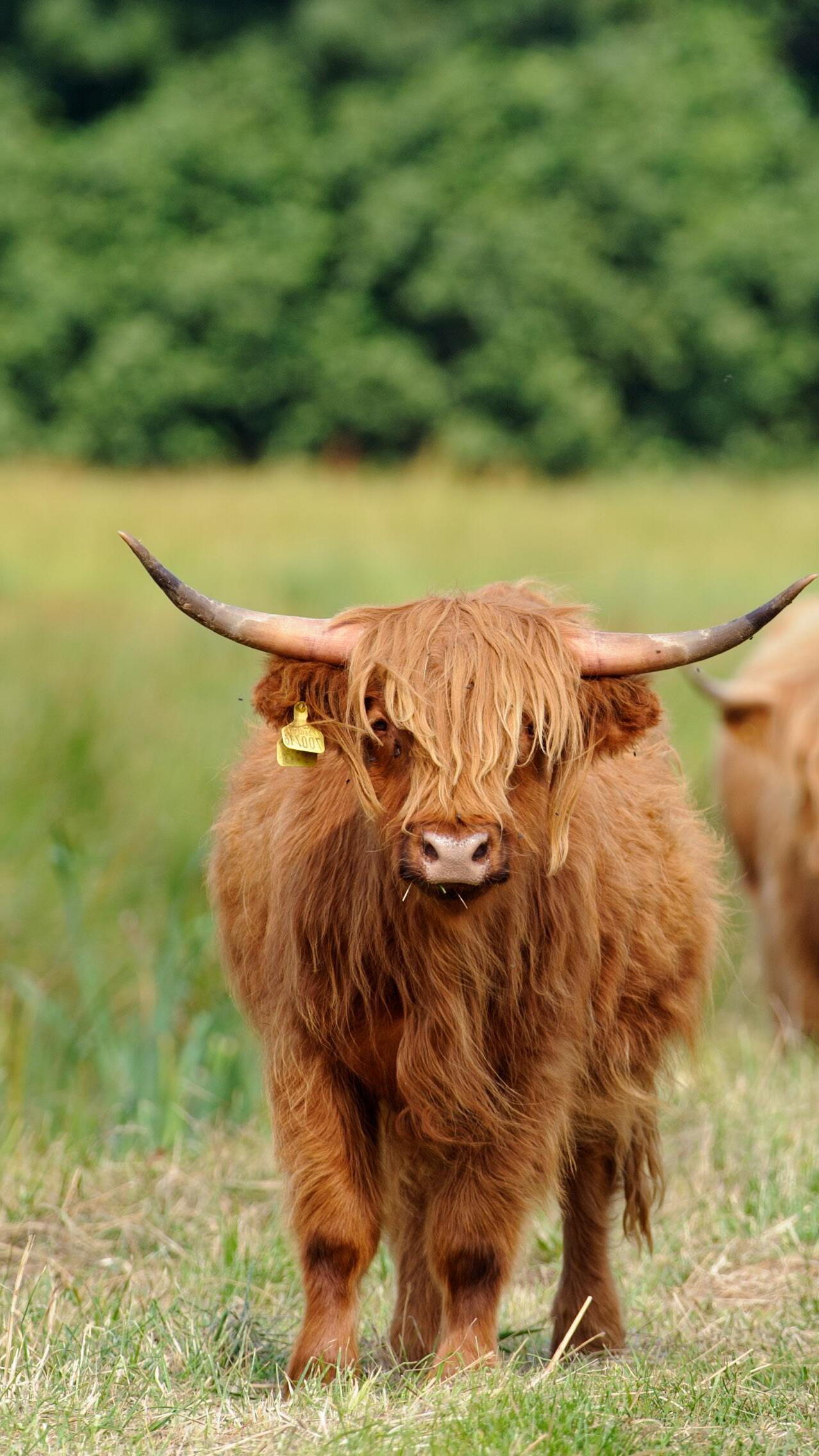
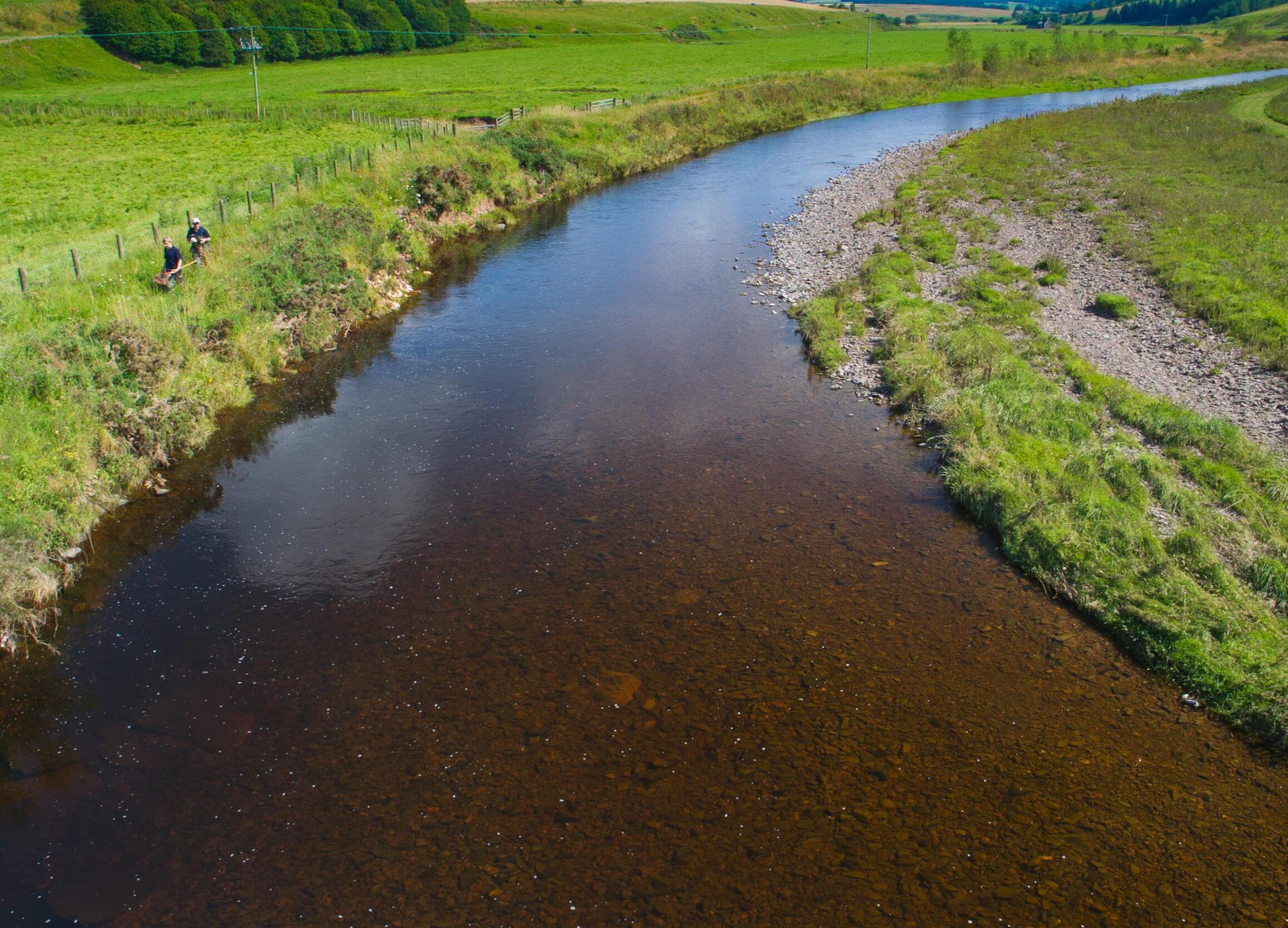
Farming is contributing to the restoration of our rivers and waterways
Industrial farming techniques are reliant on the routine use of fossil-fuel based chemicals to provide soil nutrients, support crop development, and manage pests and disease. However, this has been shown to have considerable detrimental impacts on the wider environment.
Rather than increase food security, the reliance on inputs has only served to undermine food system resilience in the UK. The intensification of agriculture, coupled with the degradation of the life systems which underpin sustainable farming, has left food production in the UK more exposed to shocks in global market supply chains and farmers vulnerable to volatile input prices.
Farmers must be supported to end the reliance of their farm businesses on costly agrochemicals. The Wildlife Trusts want to see a radical reduction in agrochemical use, including artificial fertilisers, and a transition towards farm systems which rebuild rather than deplete their farm’s natural capital.
All farmers should be supported by government and the market to adopt a more cyclical approach to nutrient management and integrated pest management to reduce and in many cases phase out altogether the use of agrochemicals, instead maximising the natural capital and nature-based solutions on farm to provide and retain nutrients and manage pests and disease.
By 2050:
• Agricultural pollution to rivers is reduced by 75% with extensive buffer strips in place to help achieve this, and a focus on soil health to stop runoff at source.
• All farm businesses embed integrated pest management and nutrient management plans which form a foundational element of farm practices.
• Enhanced regulation and testing delivers an end to the spreading of sewage sludge when contaminated with harmful microplastics, PFAS and other chemicals4
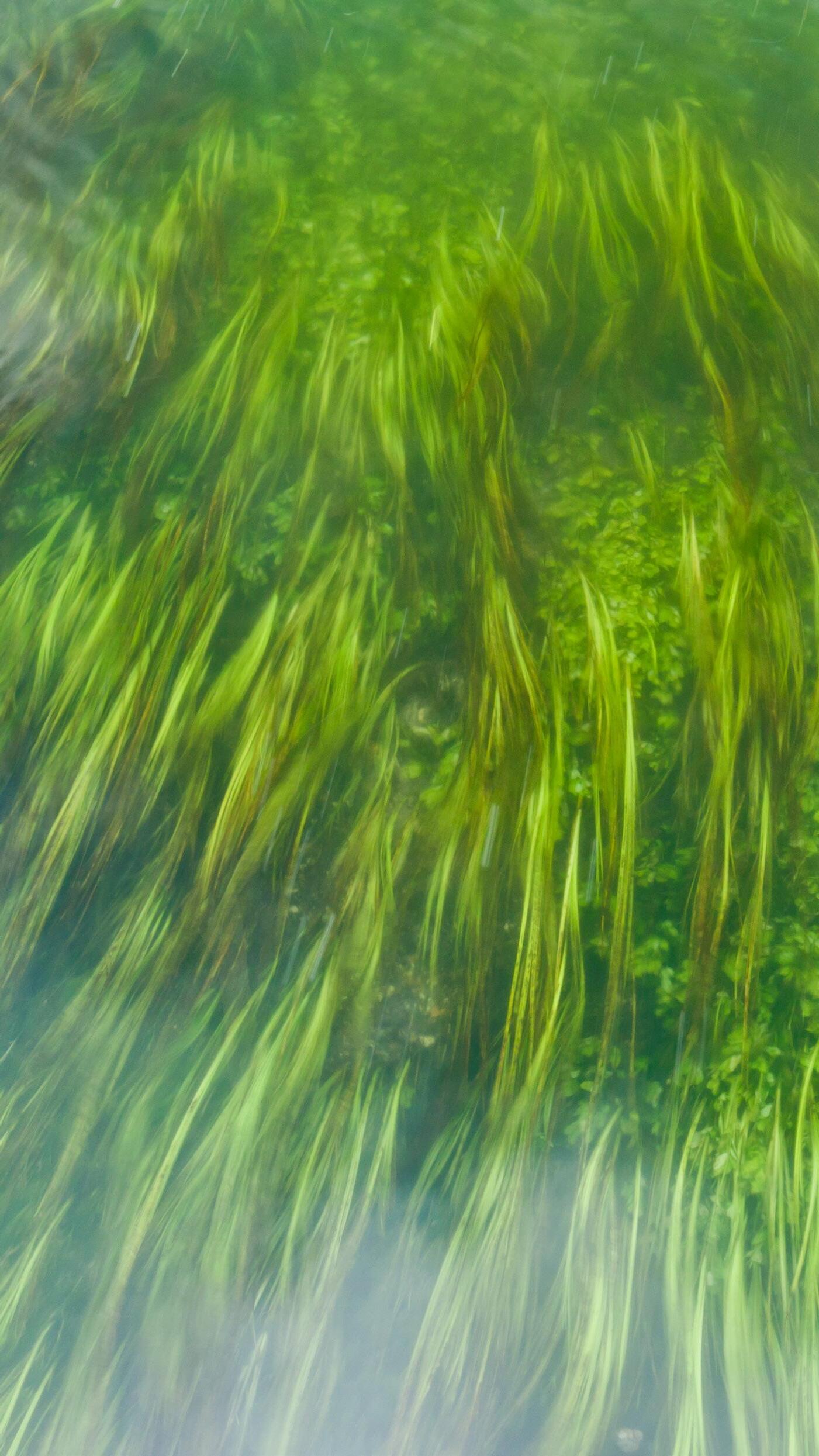
Farming at the Sweet Spot
Farming at the Sweet Spot5, a report published by The Wildlife Trusts and Nature Friendly Farming Network, shows how moving to nature-friendly farming can be productive and financially robust for farm businesses across the agricultural sector. The report publishes the findings of Nethergill Associates’ analysis of the financial sustainability of 165 active working farm businesses in the UK.
Across the 165 farm businesses studied, moving towards a farm system based on “Maximum
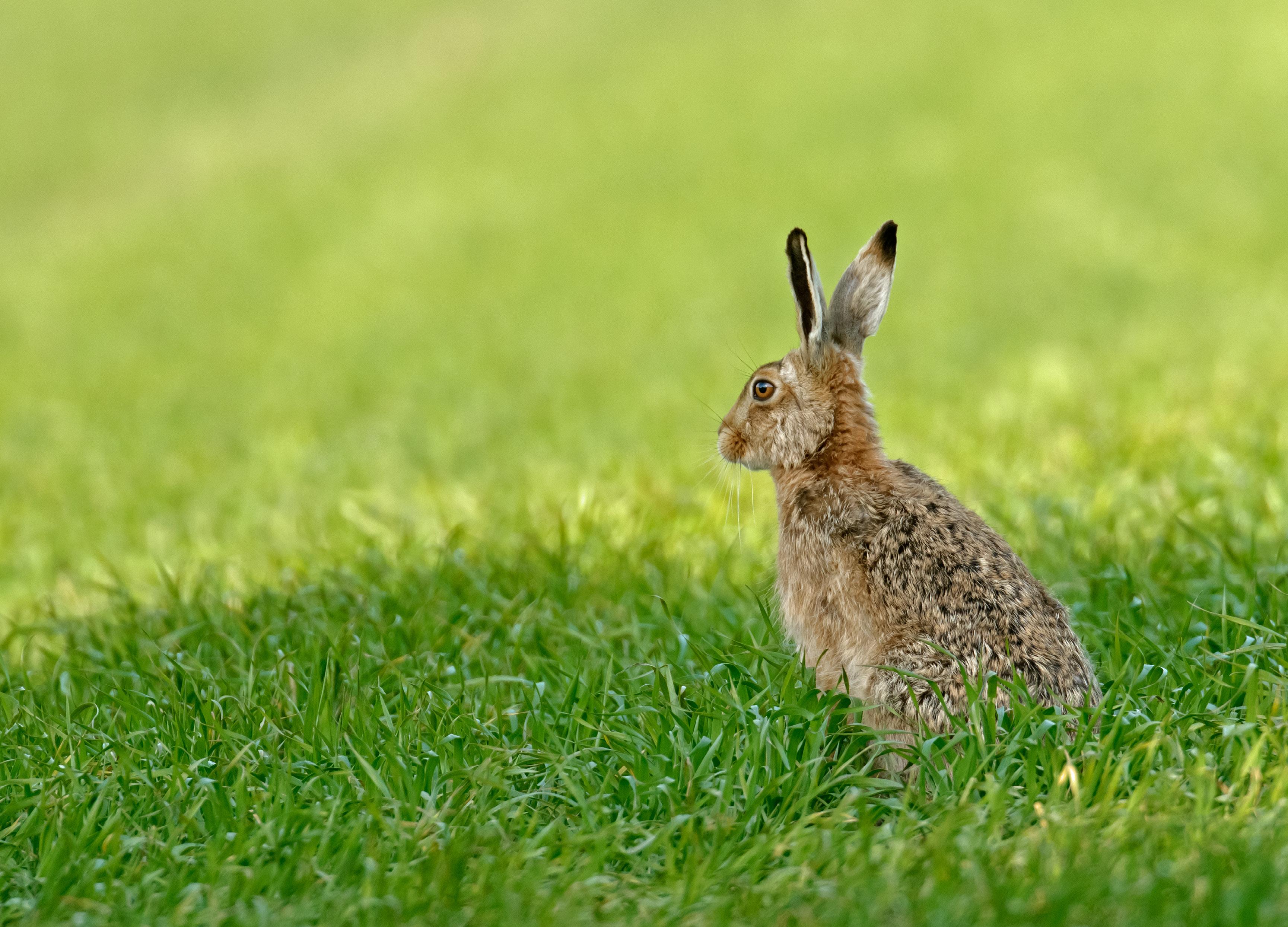
Sustainable Output” was modelled to result in an average increase of between 10-45% in commercial returns across the different farm types, alongside a reduction of artificial inputs to zero.
The analysis demonstrates that moving towards an approach to farming that works in harmony with nature would help farm businesses become more profitable, increase their resilience to external shocks and stressors, and reduce reliance on inputs such as fossil fuels, fertilisers and animal feed.
Farming businesses are sustainable, profitable and resilient through working with Nature
High input costs, tight margins, and unfairness in the supply chain are the unsustainable drivers which have led many farmers to be overly reliant on the public purse, and hamstrung businesses’ ability to take risks and invest in new practices.
This is the result of a broken and unbalanced system, driven by dominant corporate interests after years of EU agricultural policies which have promoted production over sustainability. As direct farm subsidies are phased out, further intensification is often seen by farmers as a path to greater profitability and resilience, but this is a false route to business sustainability.
With farmers impacted by the increasingly tangible impacts of a changing climate, rather than support farm businesses, continued intensification will increase farm vulnerability. Paradoxically, the way land is currently managed to maximise food production is contributing to the very biodiversity, soil and climate crises that undermines its longterm viability and the basis of farm profitability.
Many farmers already see nature as central to the long-term success of their farming practice and are adopting more sustainable approaches to producing food from the land. The
Wildlife Trusts’ work on the profitability of farm businesses5 has found that farmers who are working with nature are maximizing their farm’s profitability through lowering input costs significantly, and instead embracing nature-based solutions to nutrient management and pest control.
By 2050:
• All farmers have access to financial planning and business advice to support optimising profitability and improving business resilience through working with nature, and minimising input costs (i.e. through Maximum Sustainable Output).
• Farmers are justly rewarded through a more diverse and well regulated supply chain, and are paid a fair price for producing UK food to high environmental standards.
• New trade deals protect UK farmers from being undercut by the import of cheaper food produced to lower environmental standards through a set of Core Environmental Standards.


Wildlife-positive land management puts nature into long term recovery and supports new rural enterprises
While critical, a widespread transition to agroecological and nature-friendly farming practices alone will be insufficient to reverse nature declines in England. Many of our native habitats and species are not suited to an intensively managed landscape, and require wilder spaces to recover and thrive.
The Wildlife Trusts support the evidence that 30% of UK land must be managed and protected for nature if the UK is to restore its lost wildlife and deliver the nature-based solutions society needs to address the climate crisis. Yet just 10% of land in the UK is protected for nature, and more than half of that area is in poor condition. A significant step change in the management of land for nature is needed.
Where appropriate some land use in England must transition from agriculture to be managed primarily for nature restoration.
Done in the right place, restoring land for nature can provide huge opportunities for both environmental outcomes and for local communities and rural enterprises. The Wildlife Trusts work closely with these communities to support farmers and ensure there is a just transition towards new economies in these areas, which reward local people and provide opportunities for sustainable development.
The Wildlife Trusts will work closely with farmers, businesses, communities, eNGOs, and Government to ensure a strategic approach to land use throughout the UK balances the different demands we put on land to optimise its use, sensitive to local and regional issues.
By 2050:
• A Land Use Framework for England ensures that 30% of land is managed to a good condition and protected for nature.
• Rural businesses in areas where farming no longer provides the primary income stream are supported to explore and access new revenue streams, for example through carbon sequestration, biodiversity creation, or tourism.
• Local Nature Recovery Strategies ensure that new habitats for nature are sensitive to local and regional contexts, and connect at a landscape scale to ensure the Lawton Principles of “more, bigger, better, and joined”6 are put into practice.
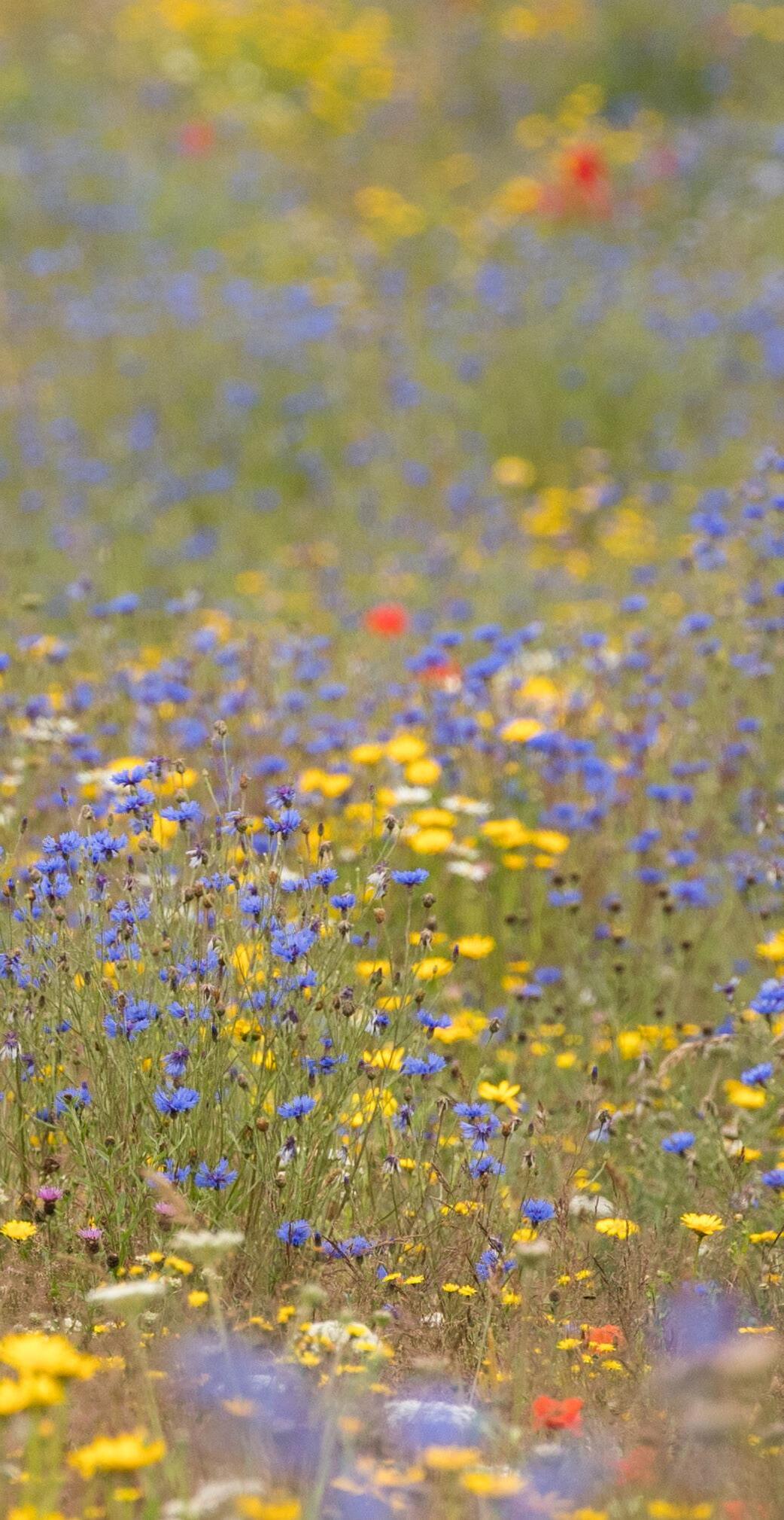
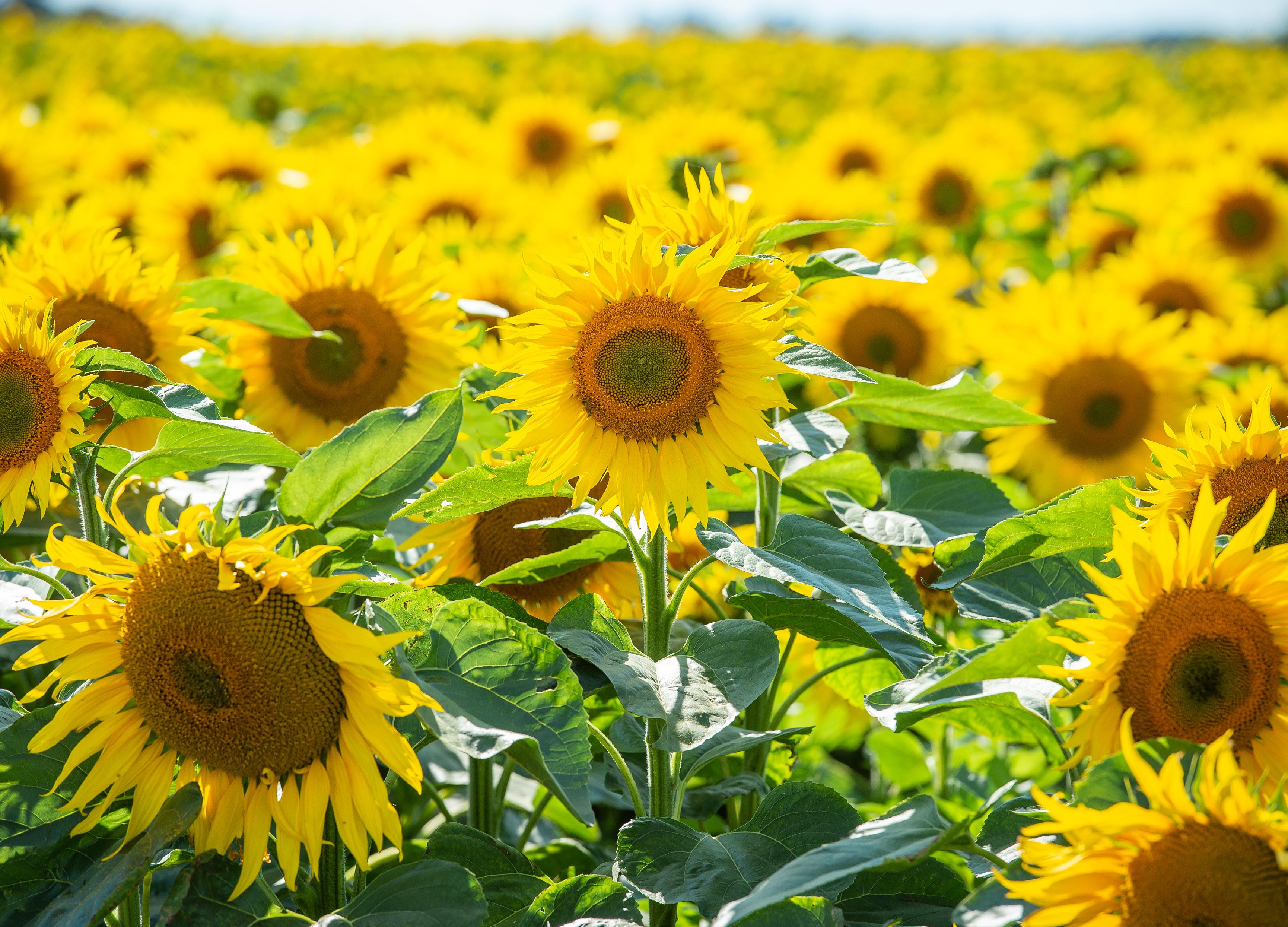
Farming is resilient to a changing climate
Healthy soils, clean and plentiful water, and thriving invertebrate populations are the foundation of our farming system — yet are threatened by climate change and ecological breakdown. The UK Government’s Food Security Report 20247 makes it clear that climate change and ecological breakdown pose existential threats to food security.
“Long term decline in the UK’s natural capital is a pressing risk to UK food production,” and “Climate change, nature loss and water insecurity pose significant risks to the ability of global food production to meet demand over the longer term.”
A healthy and thriving natural world is essential to support a resilient food system. For example, natural flood management projects which hold back water during periods of heavy rain to prevent flood damage have been shown to deliver £10 in benefits for each £1 invested8, or bees and other pollinators which provide crop pollination benefits of £400 million each year9.
Climate change no longer presents abstract threats confined to a post-apocalyptic future. The consequences are now playing out across the UK with significant impacts for our
ability to produce food. This means that the restoration of nature – including natural habitats, ecosystems, rivers, uplands, peatlands soils and much, much more – is critical to feed ourselves in the future. Without urgent action to address the dual climate and biodiversity crises these risks will only increase.
By 2050:
• All upland peat soils are restored, and all lowland peat soils are sustainably managed to ensure they are effective carbon sinks10 .
• All river catchments in England have an Integrated Water Management Strategy in place to restore ecosystem functionality, protect communities from flooding, and hold back water in times of drought.
• Farm systems and food supply chains embed climate change emissions reductions, adaptation and resilience measures as core business practices.
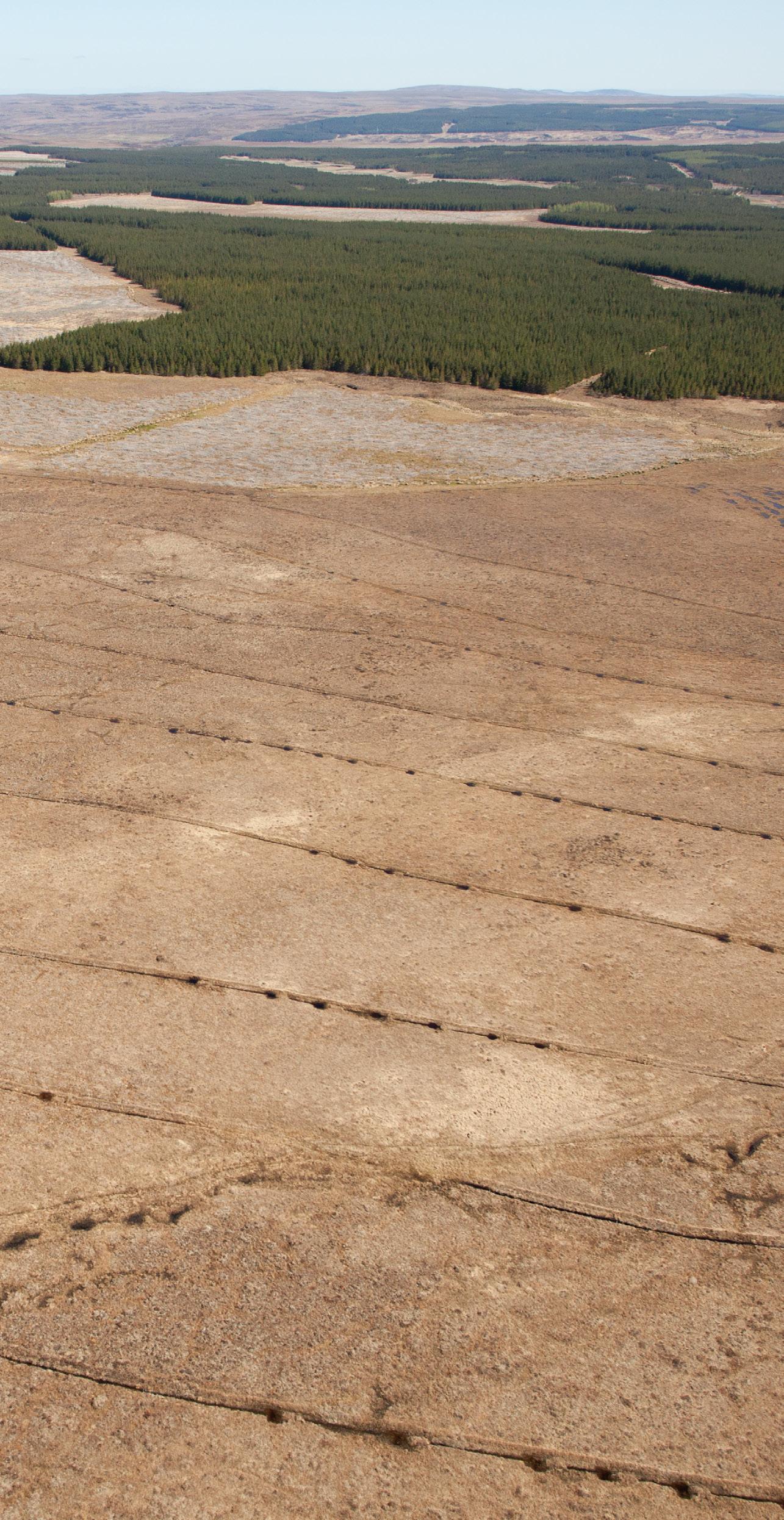
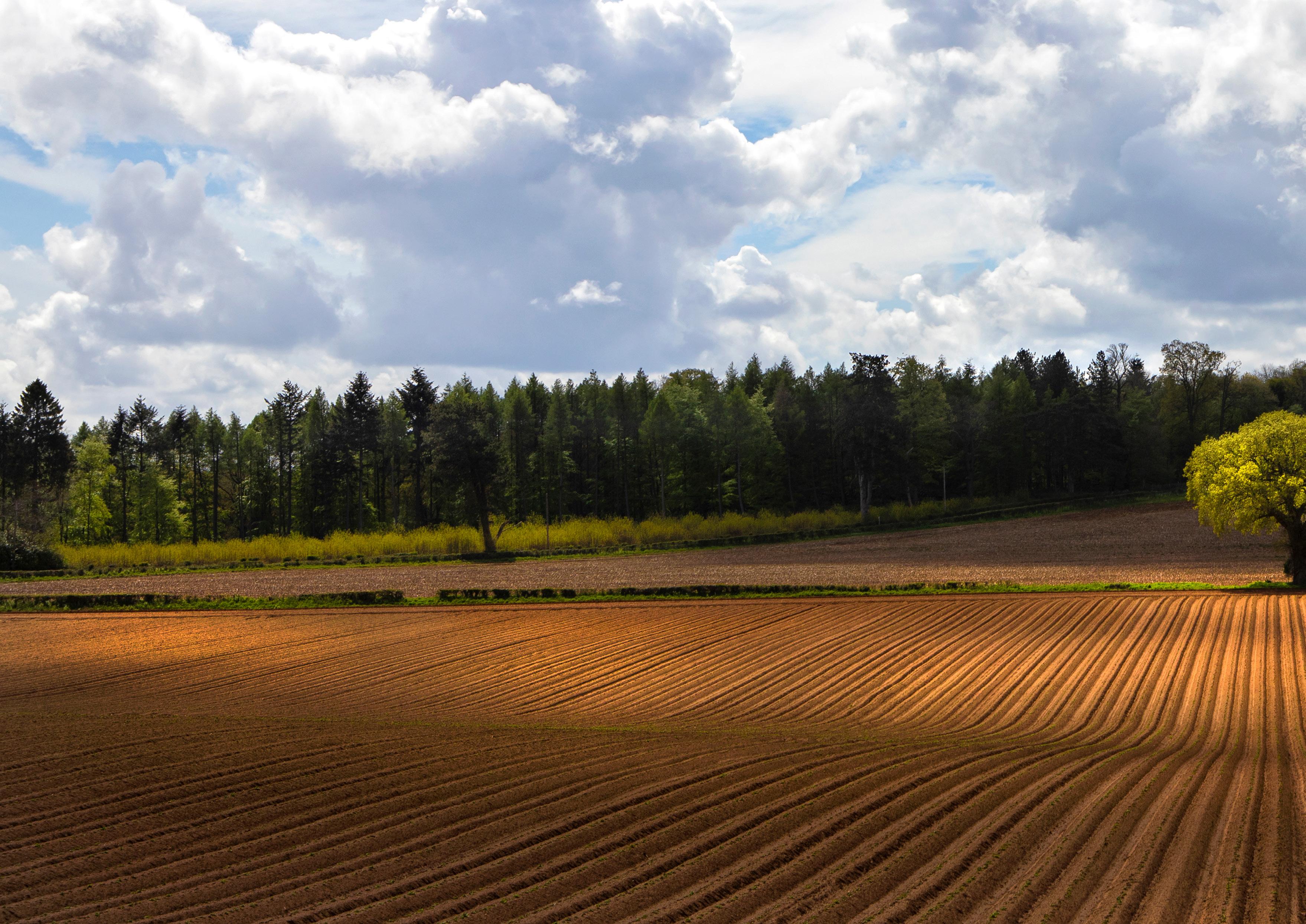
Farming Transformations

ACHIEVING THESE KEY GOALS requires a radical change in farm and food systems and a fundamental shift in our attitudes to farming with nature and to our food.
The Wildlife Trusts have identified six key changes we believe are needed to achieve a nature-positive, climate resilient food system which supports farmers and provides healthy & nutritious diets.
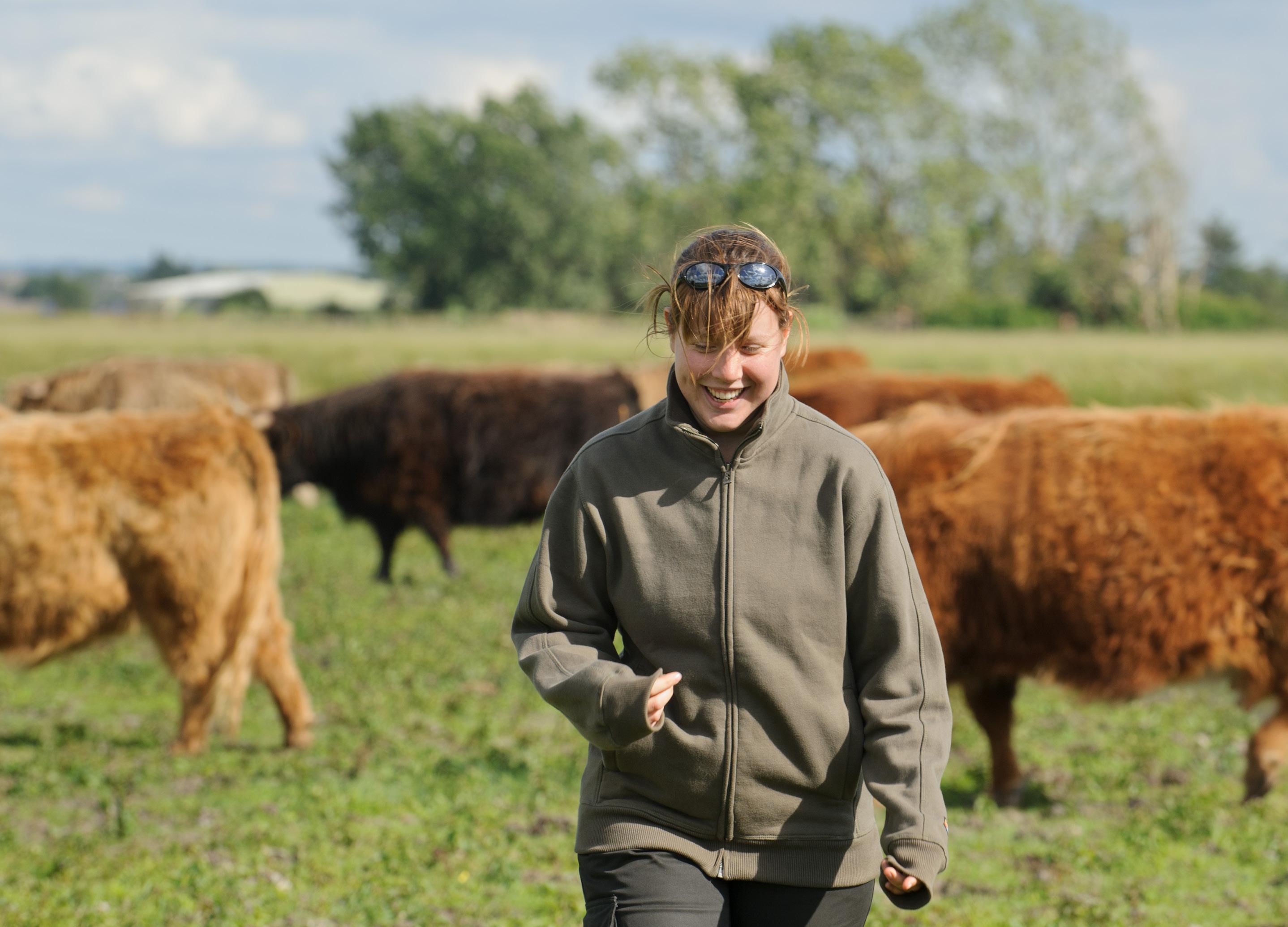
Aligning public & private finance to invest in Nature-Based Solutions
Farmers must be empowered to tackle the climate and nature emergencies.
Financing and resources to embed agroecological and regenerative farming practices across all farm businesses in England is critical to provide farmers with the support they need to adapt to climate change and manage resilient businesses, move away from intensive farming and its reliance on fossil-fuel based agrochemicals, and enhance the natural assets on their land.
This support is vital to drive investment in habitat creation and nature-based solutions to ensure food security and protect communities - creating wetland habitats and restoring peatlands to hold water back and protect farmland from flooding in times of heavy rain, and releasing it slowly to provide much needed water during times of drought. Planting new woodlands which lock in carbon and help mitigate the worst impacts of climate change. Boosting biodiversity and wildlife abundance to support essential pollinators and beneficial insects which predate on crop pests.
Independent economic analysis by The Wildlife Trusts, RSPB, and National Trust estimate that annual investment in nature-friendly farming and nature-positive land management in England must be at least £3.1 billion each year to achieve goals for nature and climate, and avert the significant costs associated with continued nature decline11 Whilst private finance initiatives mature, significant public funding is essential to provide transitional support for farmers and encourage developing green businesses.
There is huge uncertainty for the future of many farmers in England, so public funding to support them to diversify and navigate the biggest transition in farming policy for half a century is essential. Investing in nature and climate friendly farming and land management will not only provide farmers with an income for their valued services to nature, it is a cost-effective way to meet the legally binding nature and climate targets and ensure the resilience of our food production into the future.
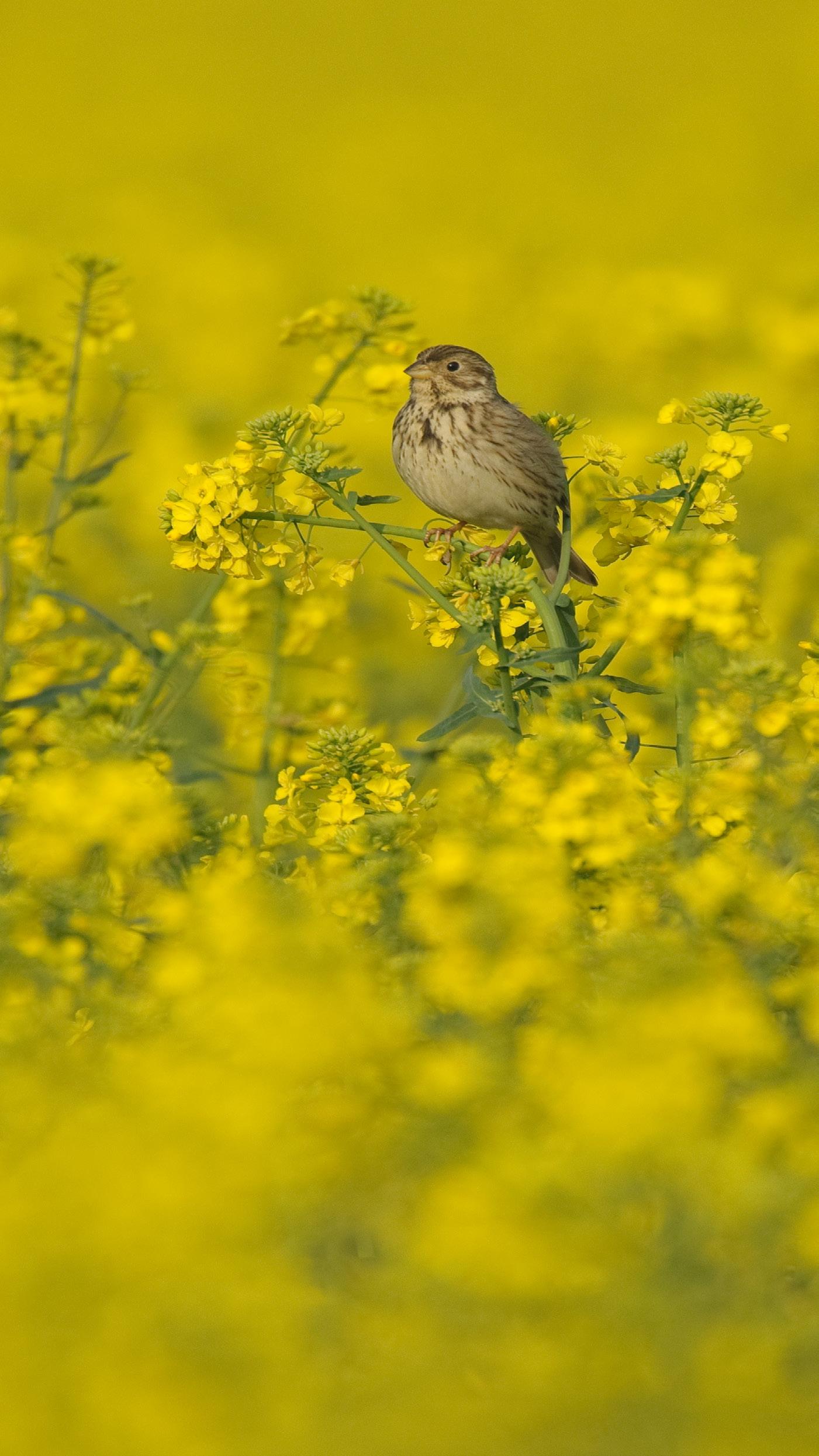
Natural Carbon Capture
Energy companies are set to make significant profits12 off the back of £22 billion of public investment into Carbon Capture and Storage (CCS) technologies. There is a clear ethical and commercial case for the Government to intervene to ensure a healthy return on investment to the taxpayer.
Instead, a share of the profits of CCS investments should be reinvested into habitat restoration for natural carbon capture and climate adaptation such as peatland rewetting and restoration, reconnected floodplains, agroforestry and woodland creation. These nature-based solutions are tried-and-tested methods13 which deliver carbon capture and multiple other benefits – and farmers are best placed to deliver them.
Not only would this funding support farmers to diversify their business and access alternative revenue streams, investing in habitat restoration could create 16,050 jobs across the 20% of British constituencies experiencing the most severe employment challenges14
Besides the economic benefits, investing in nature projects can have wider co-benefits to wellbeing and mental health, while making communities more resilient to extreme weather events caused by climate change. Across the UK, public access to woodlands is estimated to save the NHS £185 million per year15 due to boosts in mental health and wellbeing.
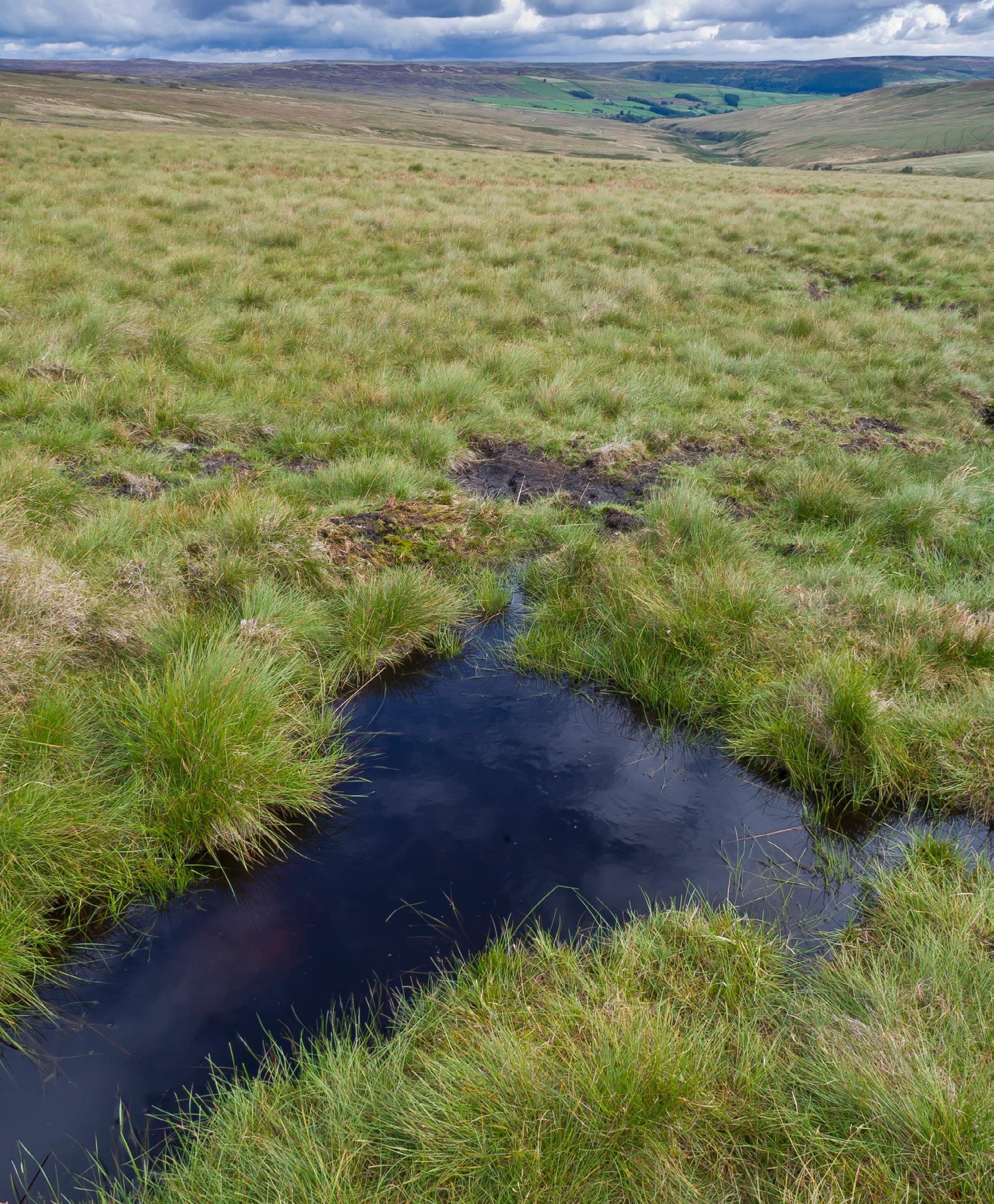
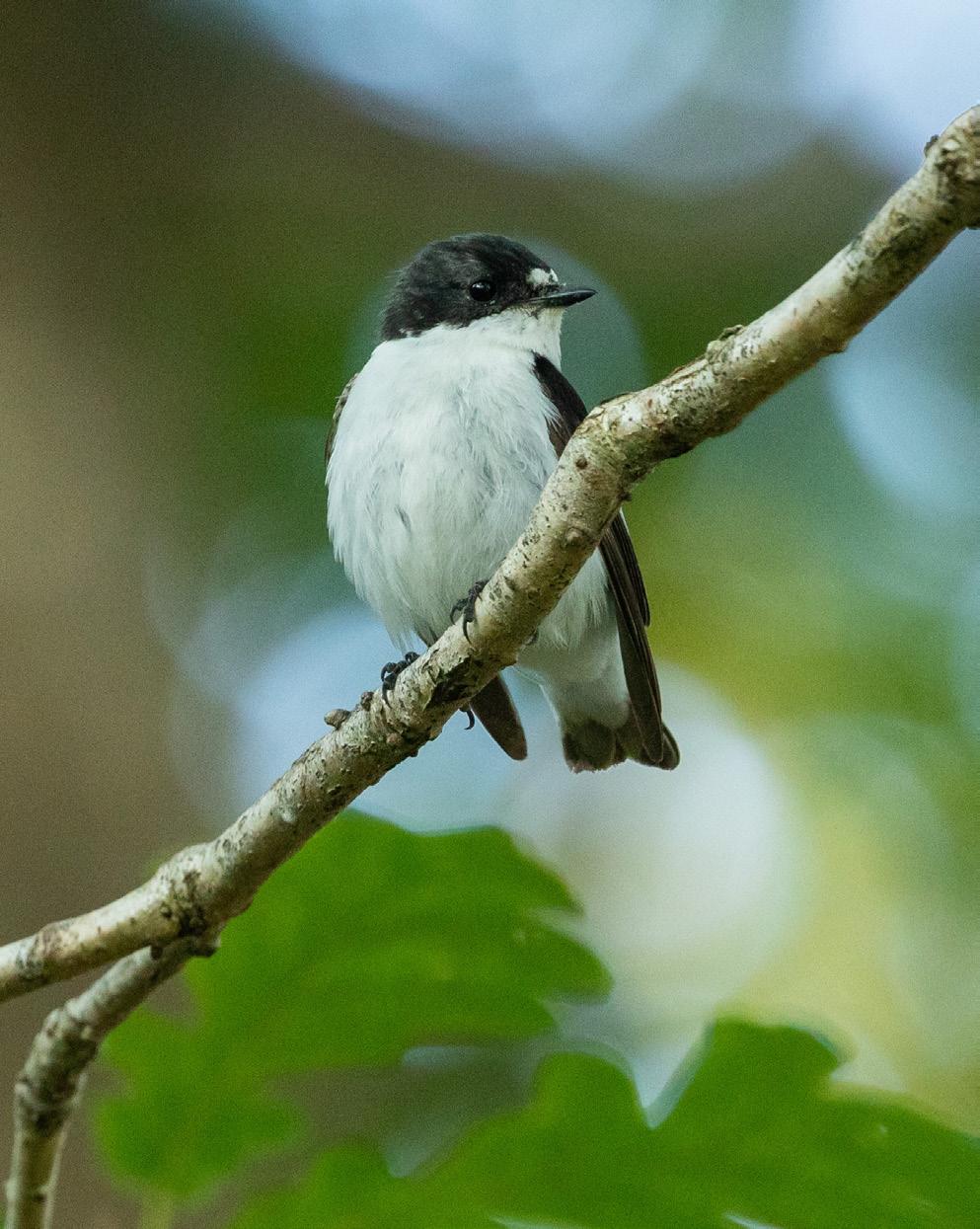
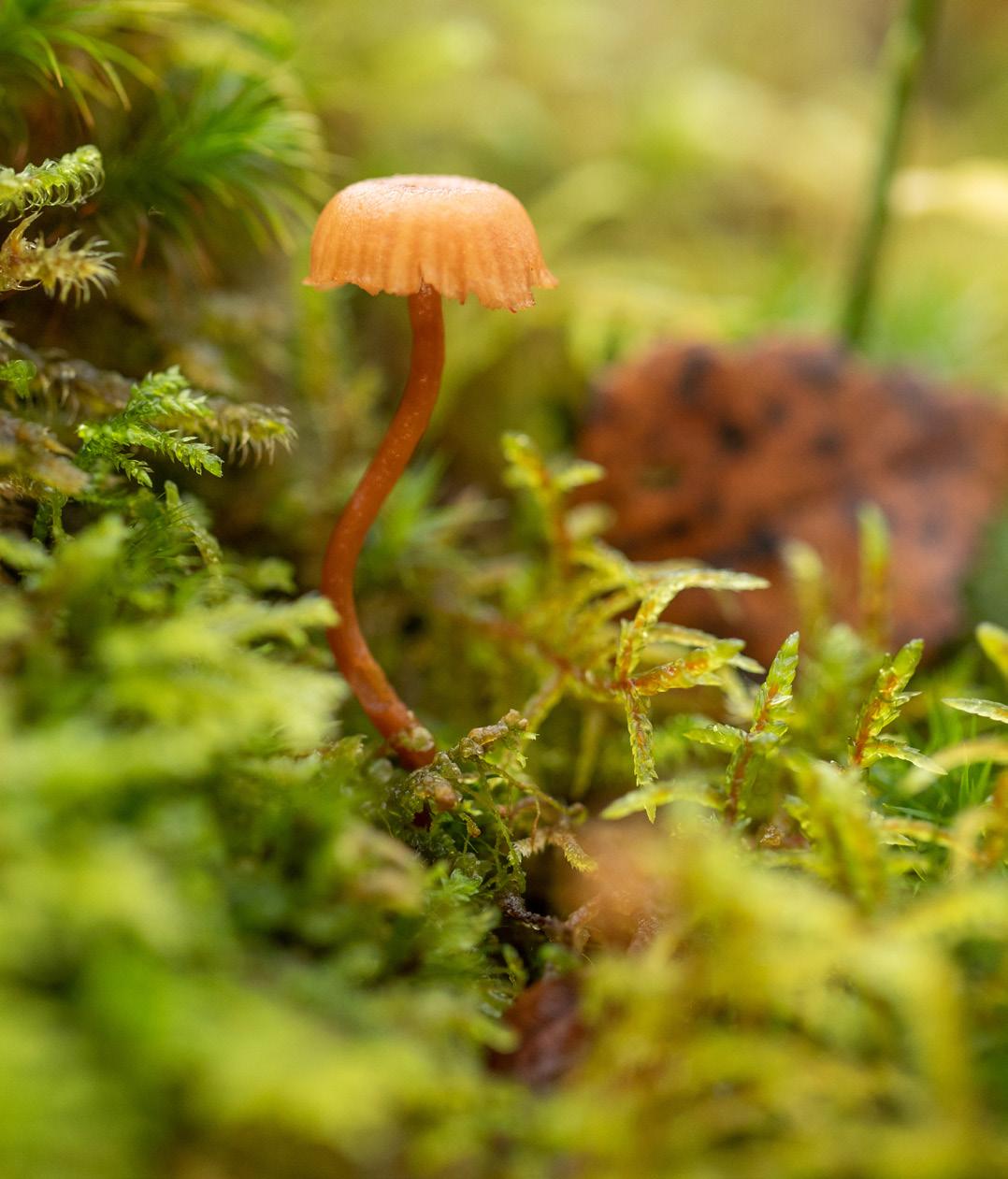

CASE STUDY:
Temperate Rainforest Restoration
The Wildlife Trusts have embarked on an ambitious 100-year journey to restore one of the rarest and most precious woodland habitats across the British Isles; our lost temperate rainforests16. In partnership with Aviva, The Wildlife Trusts have secured £40 million to invest in restoring 1,755 hectares of temperate rainforest across the British Isles, with an estimated 222,000 tonnes of carbon sequestered by 2050, doubling to 440,000 tonnes by 2060.
Some of the amazing new rainforests created through this programme include Bowden Pillars in Devon, Bryn Ifan in North Wales, Creg y Cowin and Glion Darragh on the Isle of Man, Trellwyn Fach in Pembrokeshire, and – most recently – Skiddaw in Cumbria. Each site is owned and managed by the local Wildlife Trust and encompasses several other initiatives which will run in tandem to the tree planting: agroforestry schemes, community engagement, volunteering opportunities, and eventually some low-impact grazing will all work to enrich the wider programme and ensure its success well into the future.
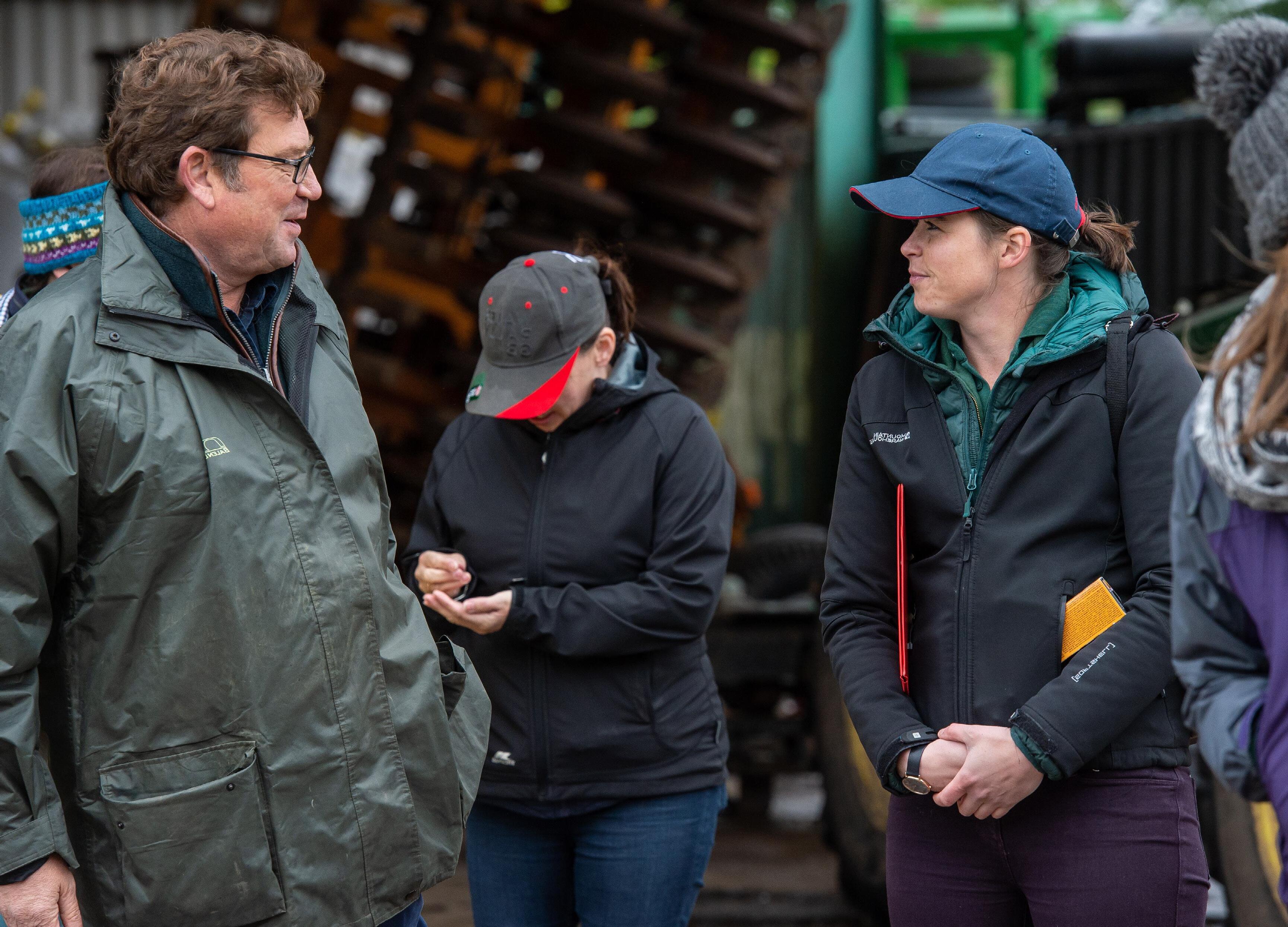
Facilitating support structures, guidance, and independent advice for farmers to transition to regenerative & agroecological farm systems
A just transition towards regenerative and agroecological farm systems will require a step change in the support structures and advice available to farmers. A shift away from the ‘maximum production model’ towards regenerative and sustainable output systems will require new skills and support beyond that available from traditional agronomists.
Farmers will need access to knowledge that will empower them to make changes to their farming system in a timely and effective way. Advisers supporting farmers to make those changes will need to understand Green Finance, regenerative techniques, natural capital, novel payment schemes, nature-based solutions, natural flood management techniques and much more.
Currently there are no training courses for advisers that encompass all of the skills areas that will be important
to support this transition. Instead, advisers are reliant on piecemeal, geographically-limited, short training days or longer certified courses which still overly promote production-oriented principles.
With appropriate advice, farmers will be able to access Green Finance with confidence, align public environmental payment schemes with their farm business, and be supported to consider options that diversify their business and attain a more sustainable output.
Wildlife Trusts already provide significant levels of advice and support to farmers through thematic funded projects. Water company supported advice and projects like the Jordans Farm Partnership have an excellent track record in demonstrating that direct advice to support farmers to adopt wildlife-friendly land management delivers huge results for nature and people.

CASE STUDY:
Jordans Farm partnership (JFP)
Over the past 10 years, The Wildlife Trusts have worked with more than 30 farmers in partnership with Jordans to make space for wildlife on their farms17. The farmers involved have committed to protecting and managing an area equal to at least 10% of their farmed land for wildlife — a core principle of the JFP and many achieve well above that level creating more space for nature to thrive. Collectively, the farms provide a staggering 4,320 hectares for wildlife.
Each Jordans farmer works closely with a farm advisor from their local Wildlife Trust to develop a bespoke and thorough whole farm conservation plan. This whole-farm approach enables farmers to integrate habitats for species such as barn owl, brown hare, bats and vital pollinating insects like bees and butterflies within their farm systems, whilst still producing high quality food for people. Features like hedgerows, field margins and ponds create wildlife corridors enabling wildlife to thrive and to move through the landscape, showing that with good advice nature can thrive within a farmed landscape.
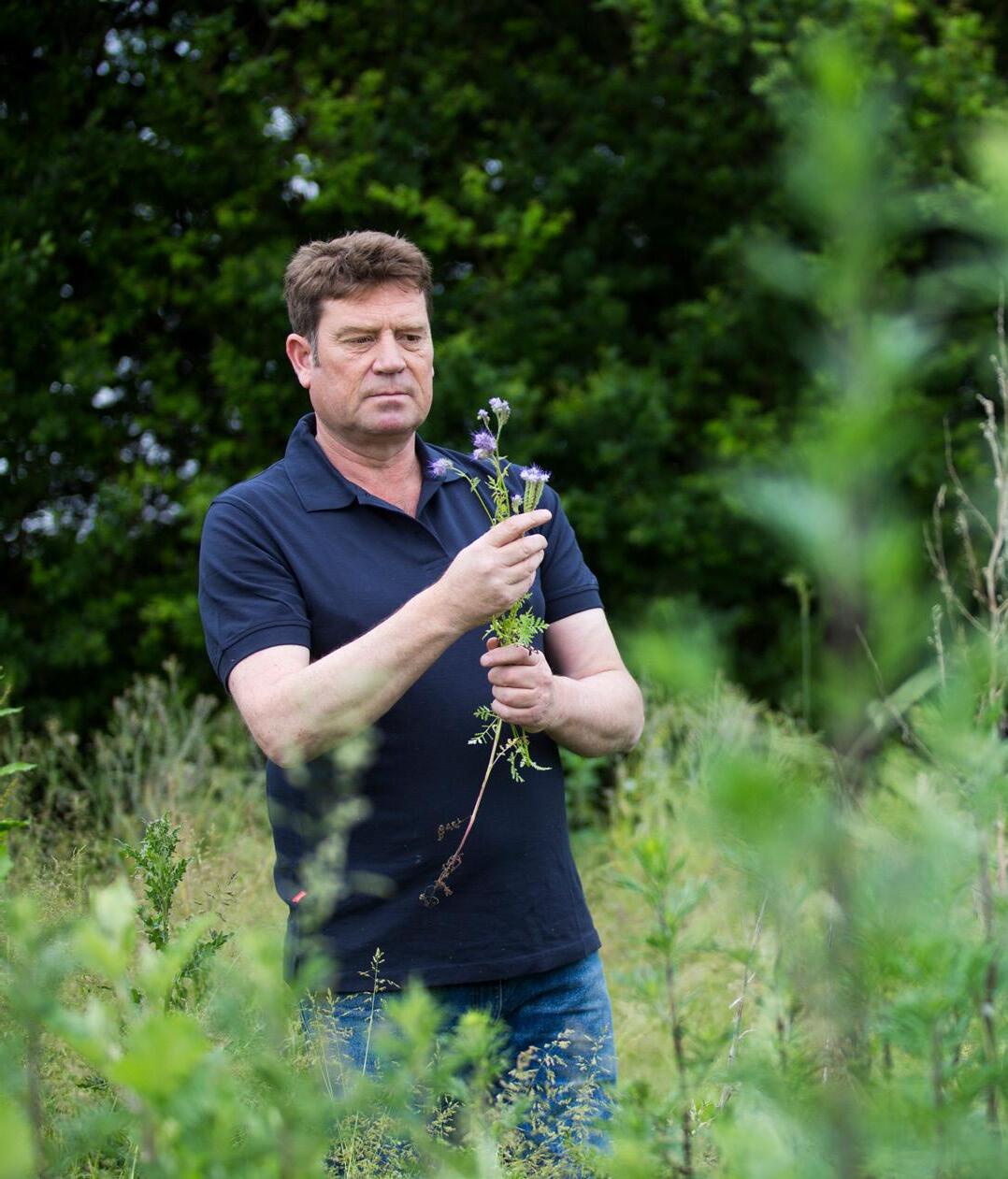
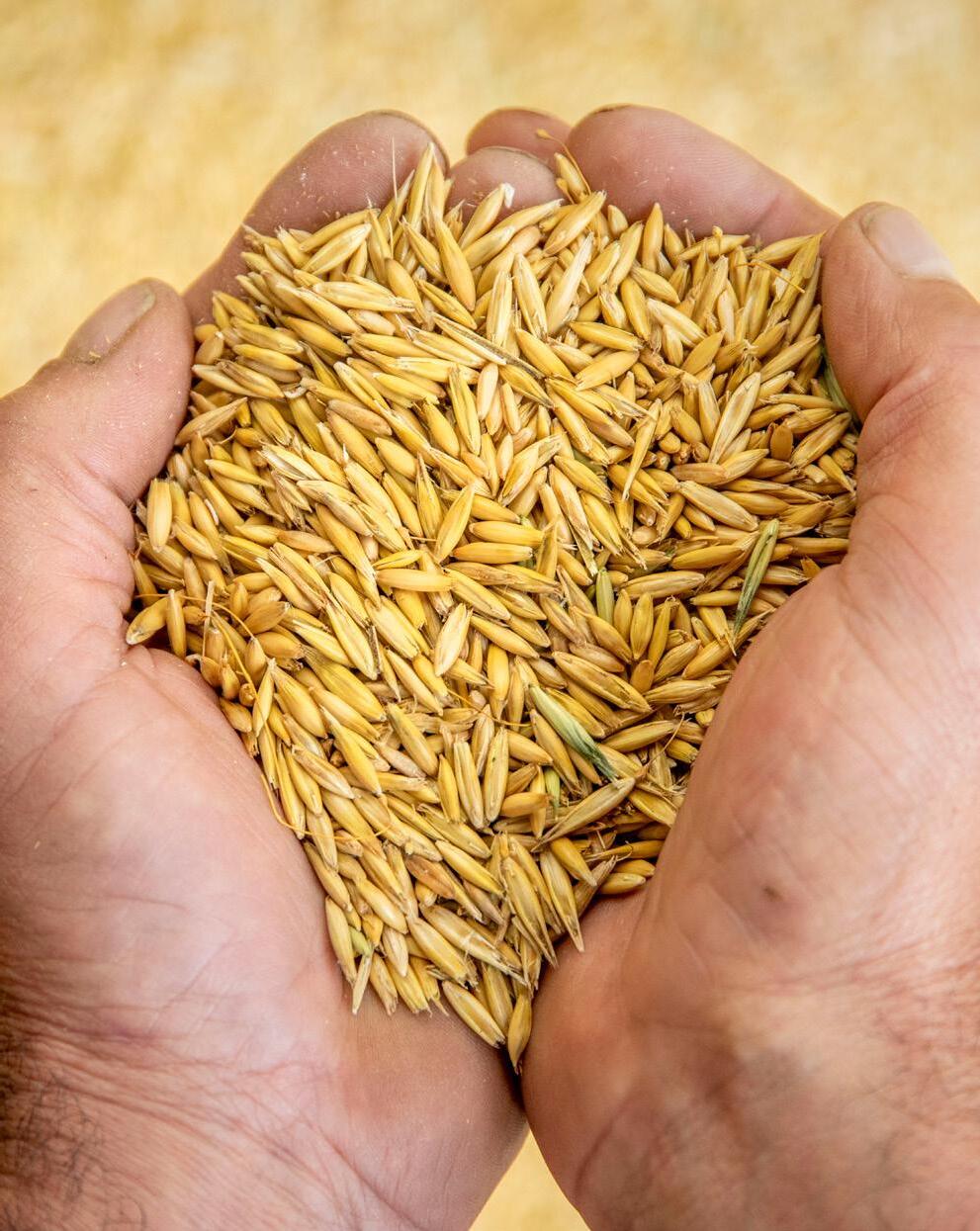
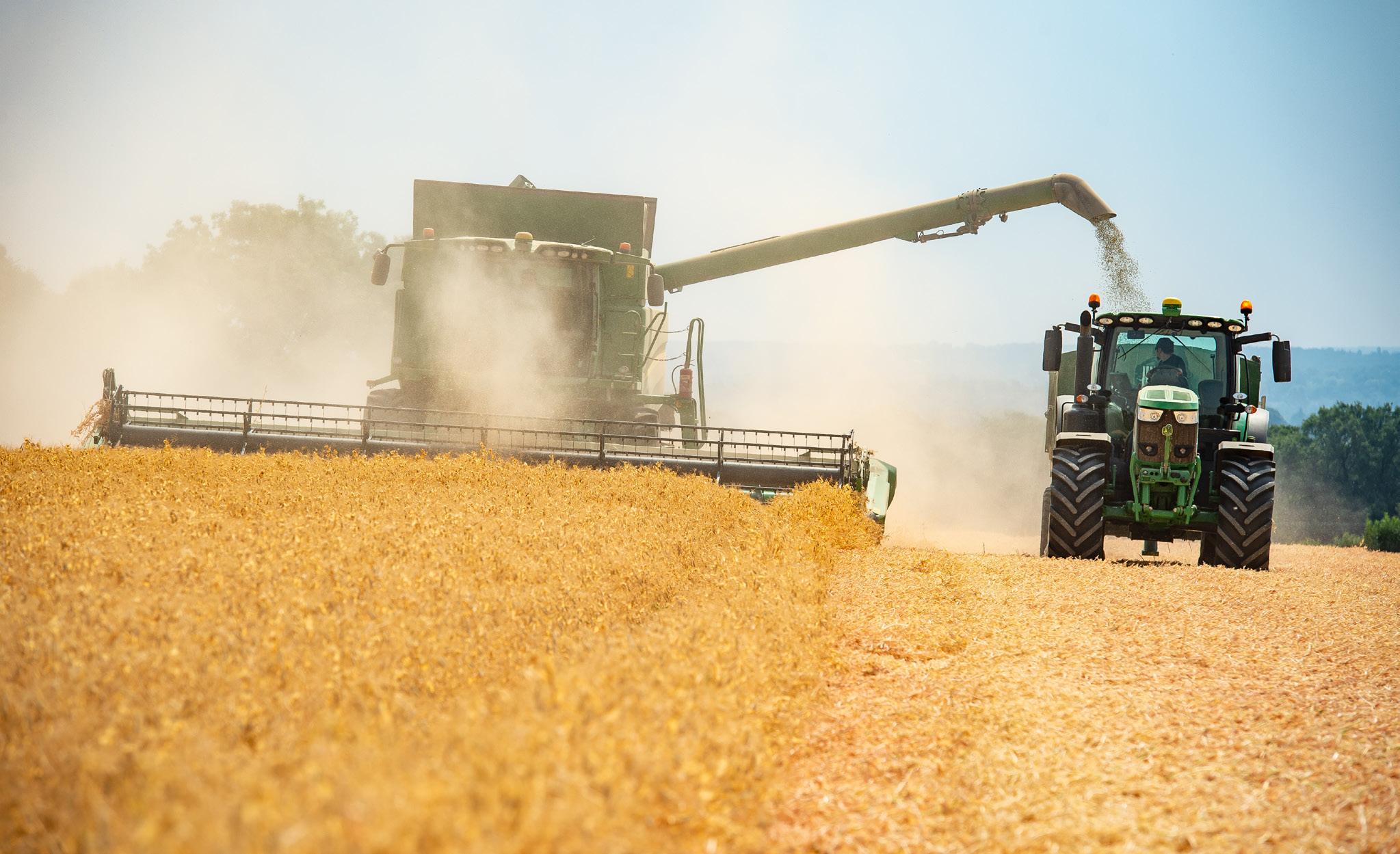

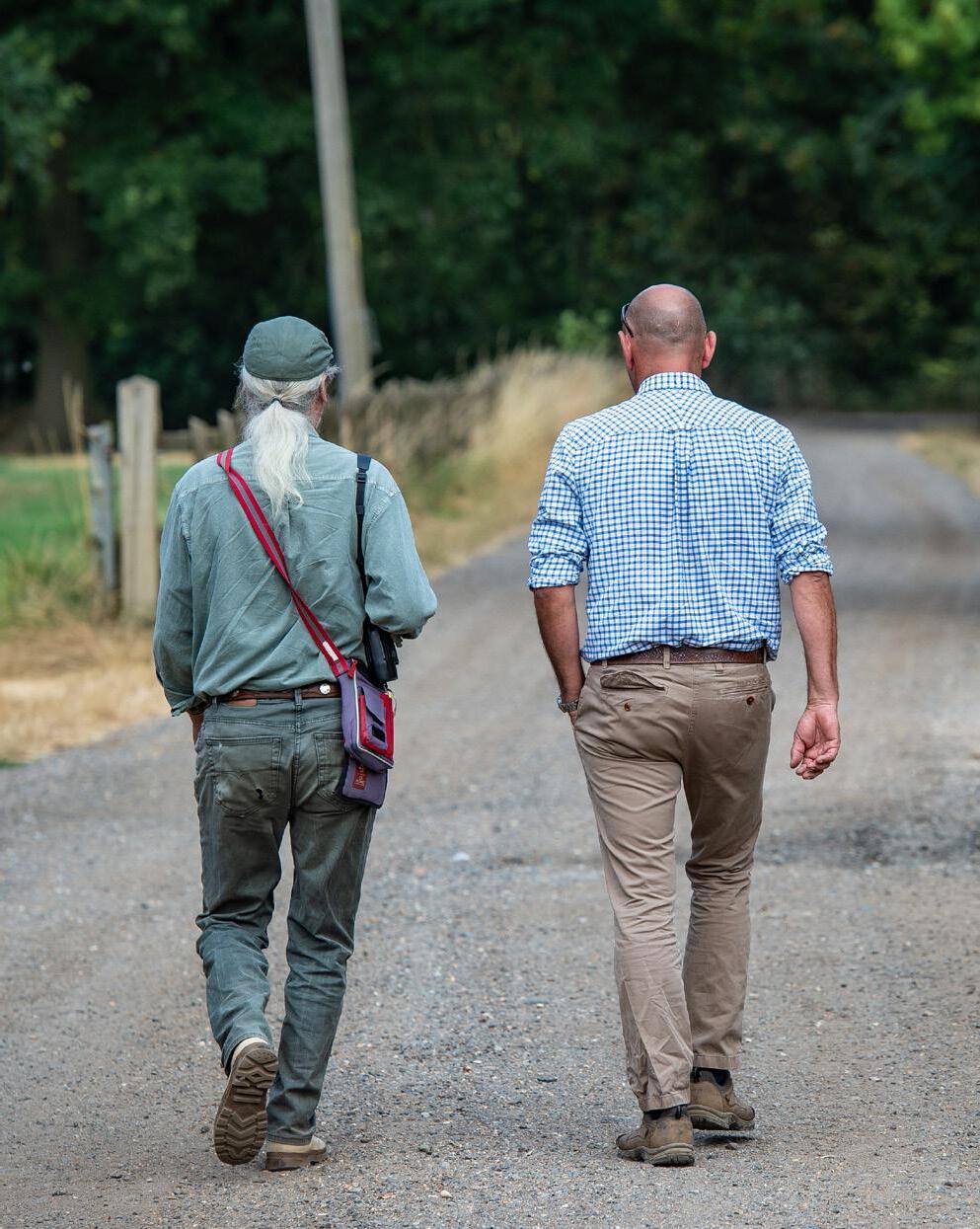
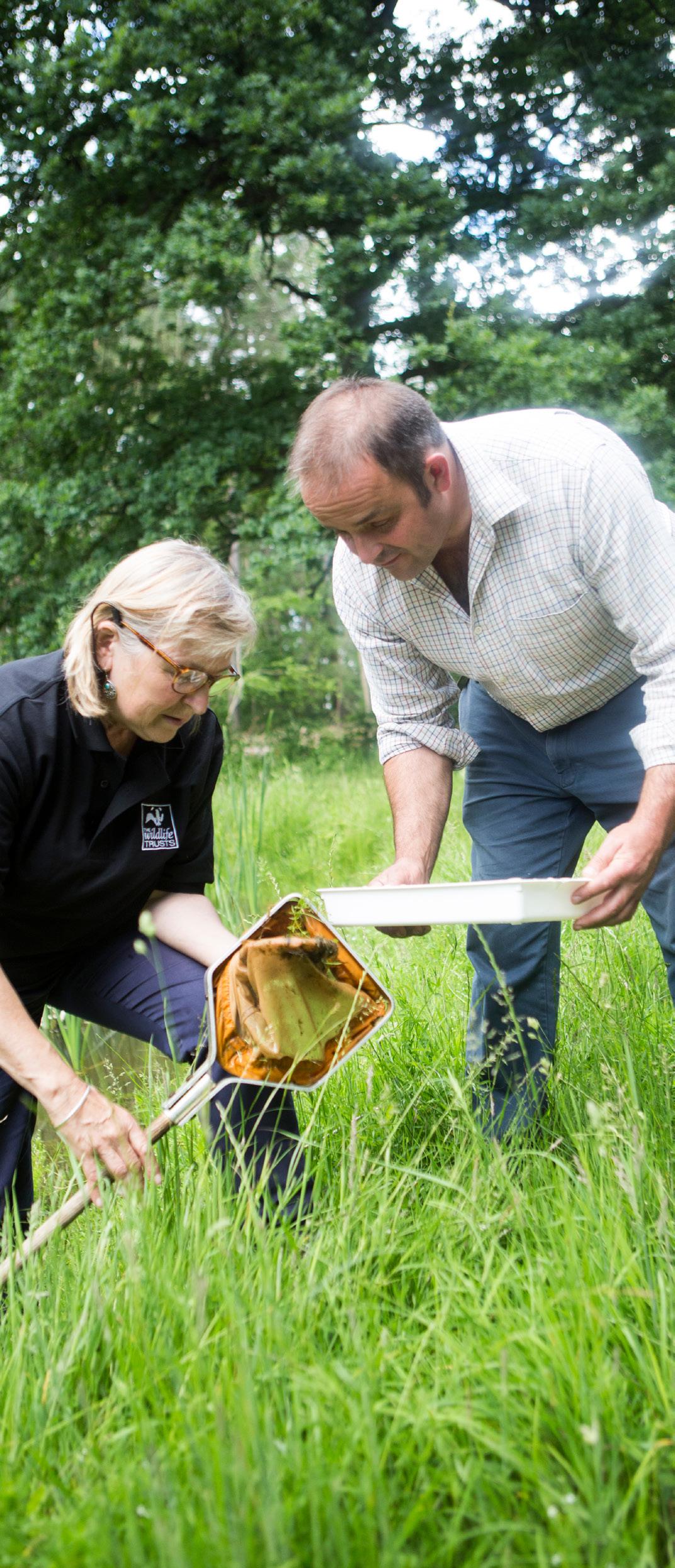
CASE STUDY: Wildlife Trust Advice Services
Wildlife Trusts help wildlife to thrive on farms by providing advice and guidance to around 5,000 landowners each year. This often involves helping farmers to access grants and can also support groups of farmers to restore and link habitats at a landscapescale through facilitating farm cluster groups.
Our experience supports the evidence that good quality and trusted advice is essential to achieving and maximizing the outcomes of environmental land management. For example farmers and growers in Worcestershire have received funding for a five year Defra Facilitation Fund project to develop habitats and nesting sites for native pollinators. The group is working together to establish viable populations of wild pollinators (bumblebees, solitary bees, hoverflies, butterflies etc.).
The project, which is coordinated by Worcestershire Wildlife Trust, audits land-holdings using a Wild Pollinator Health Check18 and suggests management changes to complement the farming practices of participants. Lessons learnt and feedback for further improvements are shared with the whole group through study days, site visits and training events.
CASE STUDY: Wildlife Trust Farm Clusters
Bringing farmers together for peer-to-peer learning is a crucial component of supporting the industry to move to more sustainable food production approaches. In Warwickshire, the Wildlife Trust started its first sustainable farming group, the Arden Farm Wildlife Network back in 2017. At that time 16 farmers joined the group and over the next 4 years the farmers identified a range of different topics they would like to learn more about; from soil health to hedgerow management, barn owls to pond creation.
The group has been so successful that in 2022 the Trust collaborated with the Warwickshire Rural Hub to create 2 more sustainable farming groups. This meant that the whole of Warwickshire was now covered by farm clusters, free at the point of entry for any farmer wishing to meet with their neighbours and learn more about wildlife and sustainable farming practices. Fast forward to 2025 and the 3 sustainable farming groups now have 150 members covering nearly 15% of the land area in the county. They continue to be led by farmer interest, identifying subjects, inviting experts and sharing best practice as farmers learn together.
As well as helping to create a landscape scale approach to nature’s recovery across farmland, these groups are critcal in addressing rural social isolation, with the farming industry suffering from mental health challenges and high suicide rates compared with other sectors. These groups bring farmers together, integrating farmer health checks and encouraging farmers to build friendships and collaborate in a way that is unique within the industry.


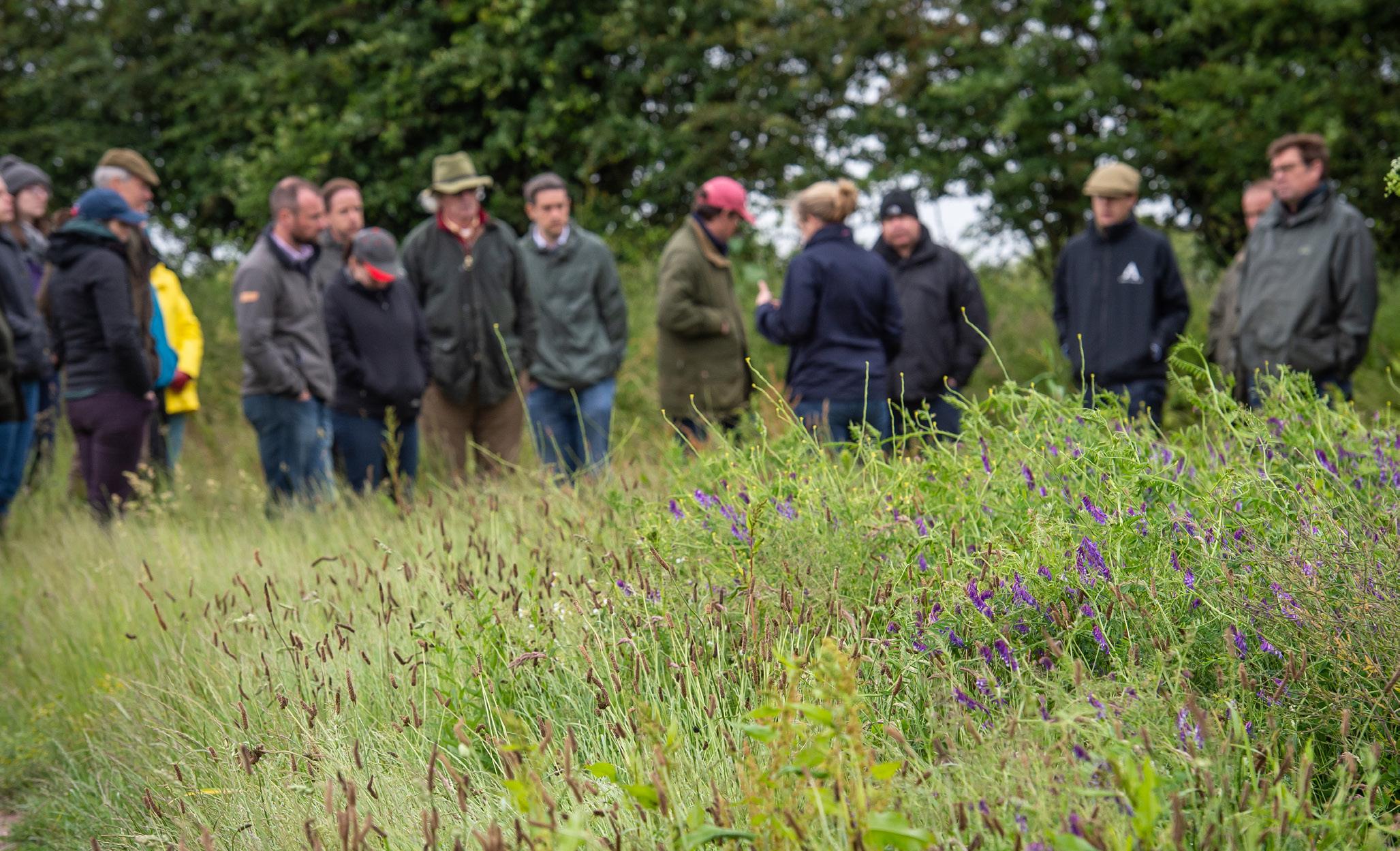

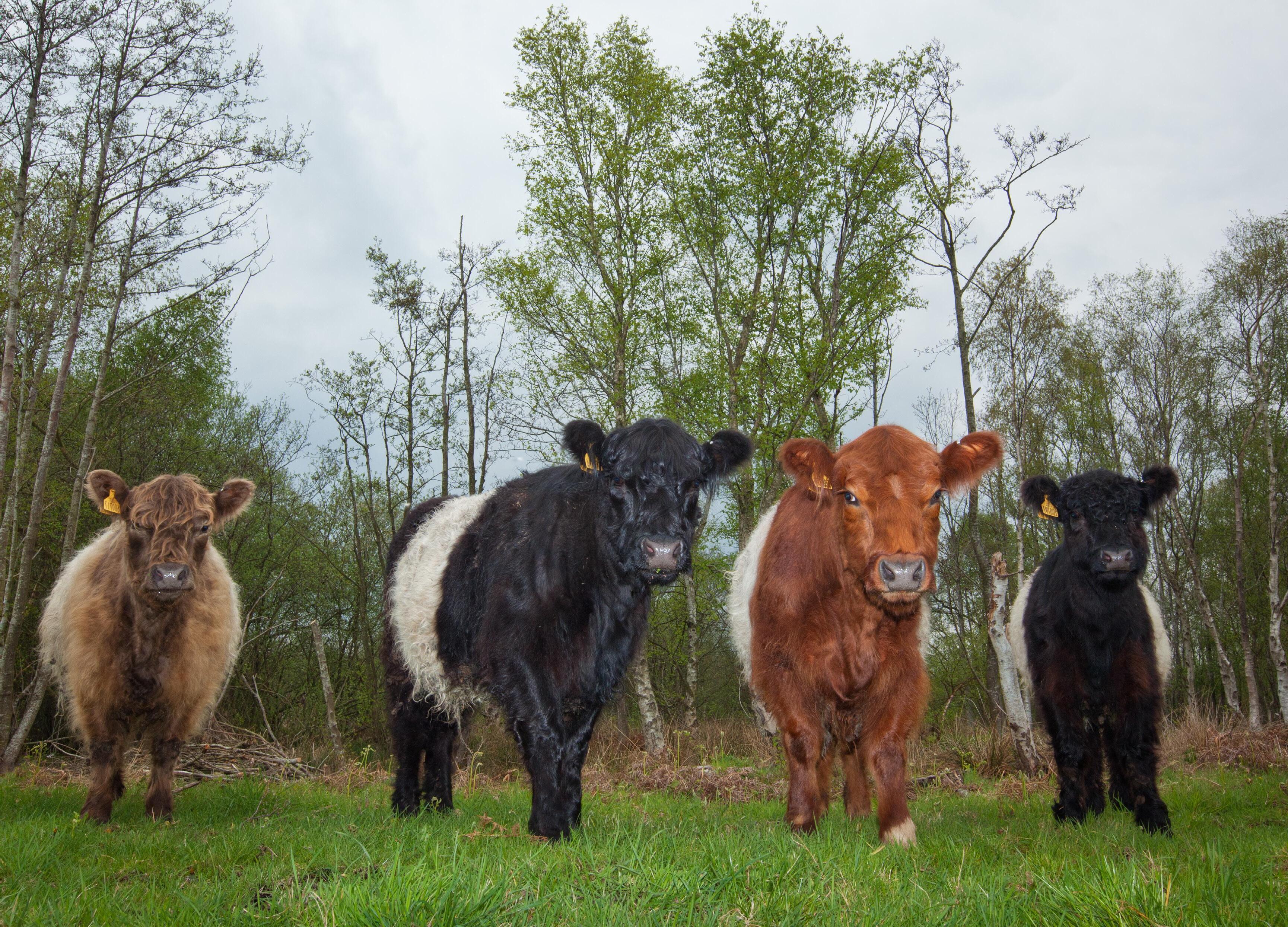
Better regulation for stability & investment
Robust regulation should set a fair but firm baseline for all farm businesses to protect the natural environment, to make polluting businesses pay for the damage that they cause, and to create a level playing field to ensure those farmers who are doing more for nature are not undermined. Not only is this important to ensure clean rivers, clean air, and healthy soils, but strong regulation has been linked to strong economic growth19.
The current regulatory environment for farming in England is overly complex, with many farmers often unaware of their requirements meaning that compliance with existing rules is low and poor practice is widespread – 42% of inspected farms were found to be non-compliant with environmental regulations in 2023-2420
Reporting on the health of our freshwater habitats under the Water Framework Directive shows that in England, only 14%21 of rivers meet the standards for good ecological status. Whilst focus is often on the polluting activities of the water industry, agriculture is the sector responsible for the majority
of water pollution issues in England, largely a consequence of intensive agricultural practices, soil run off, and excess nutrients. Farming is also responsible for more than 80% of ammonia air pollution22. Improvements can be made in the sector, protecting those farmers already following best practice whilst reducing harms to the environment.
These improvements won’t be made overnight – farmers need support and guidance to improve compliance and transition to a new regulatory baseline. This must be accompanied by adequate resourcing and funding to ensure that this baseline is properly monitored and robustly enforced, founded on the Polluter Pays principle which ensures that the costs are fairly apportioned to polluting businesses and not the taxpayer.
Fair regulation should also include greater focus on supply chains, food traders and processors, and large retailers to ensure farmers receive a fair return from the market and maintain competitiveness, whilst also addressing key issues regarding food waste (see Transformation 4).
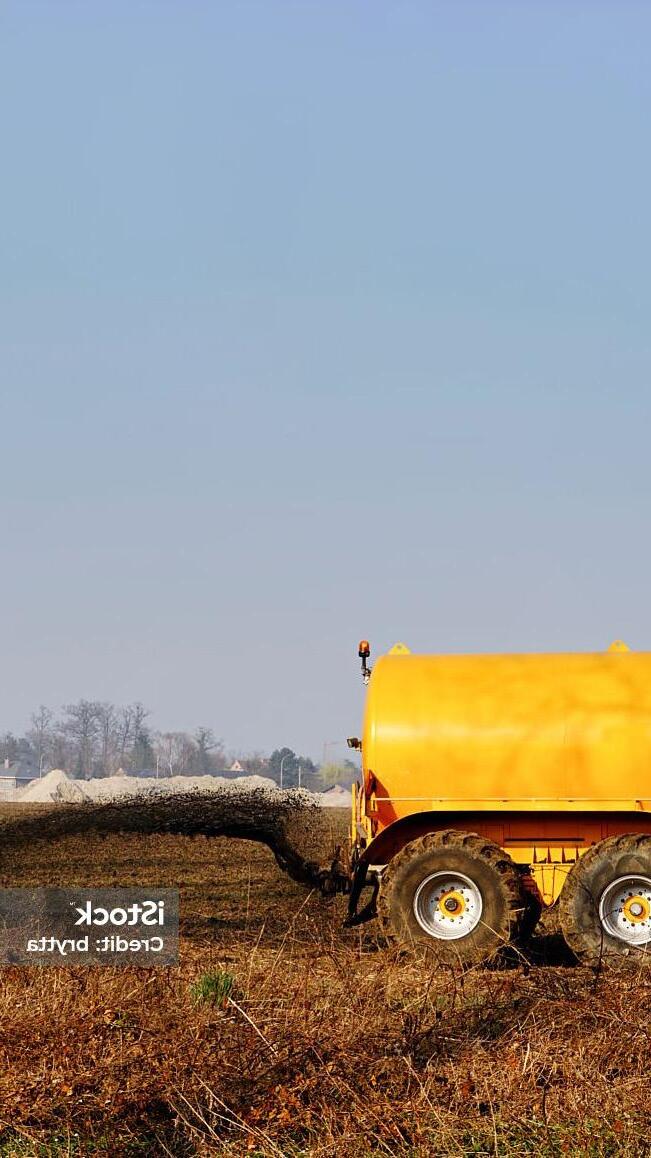
CASE STUDY:
The River Wye
Nutrient pollution in the River Wye, whose catchment straddles the English – Welsh border, has devastated the ecology of the river and is a key concern for local communities and a major cause of water quality standard failures across the catchment23.
The RePhoKUs Project led by Lancaster and Leeds Universities explored phosphate loadings in the Wye catchment, concluding that farming in the catchment generates an annual phosphorus surplus of up to 3,000 tonnes, which is accumulating in the catchment soils and polluting the river. This amount of unused phosphorus is nearly 60% greater than the national average and is driven by the large amounts of livestock manure produced in the catchment.
The Wye Adapt to Climate Change (WACC) project, a partnership between the Radnorshire Wildlife Trust, Herefordshire Wildlife Trust, and Wye Valley National Landscape, funded by The National Lottery Climate Action Fund, was set up to work with farmers and landowners to tackle pollution in the River alongside supporting them to become more resilient to a changing climate. The project offers free advice to landowners and tenants, supporting them to comply with regulation, pursue opportunities for funding, and explore how nature-based solutions can be integrated into their farm practices.

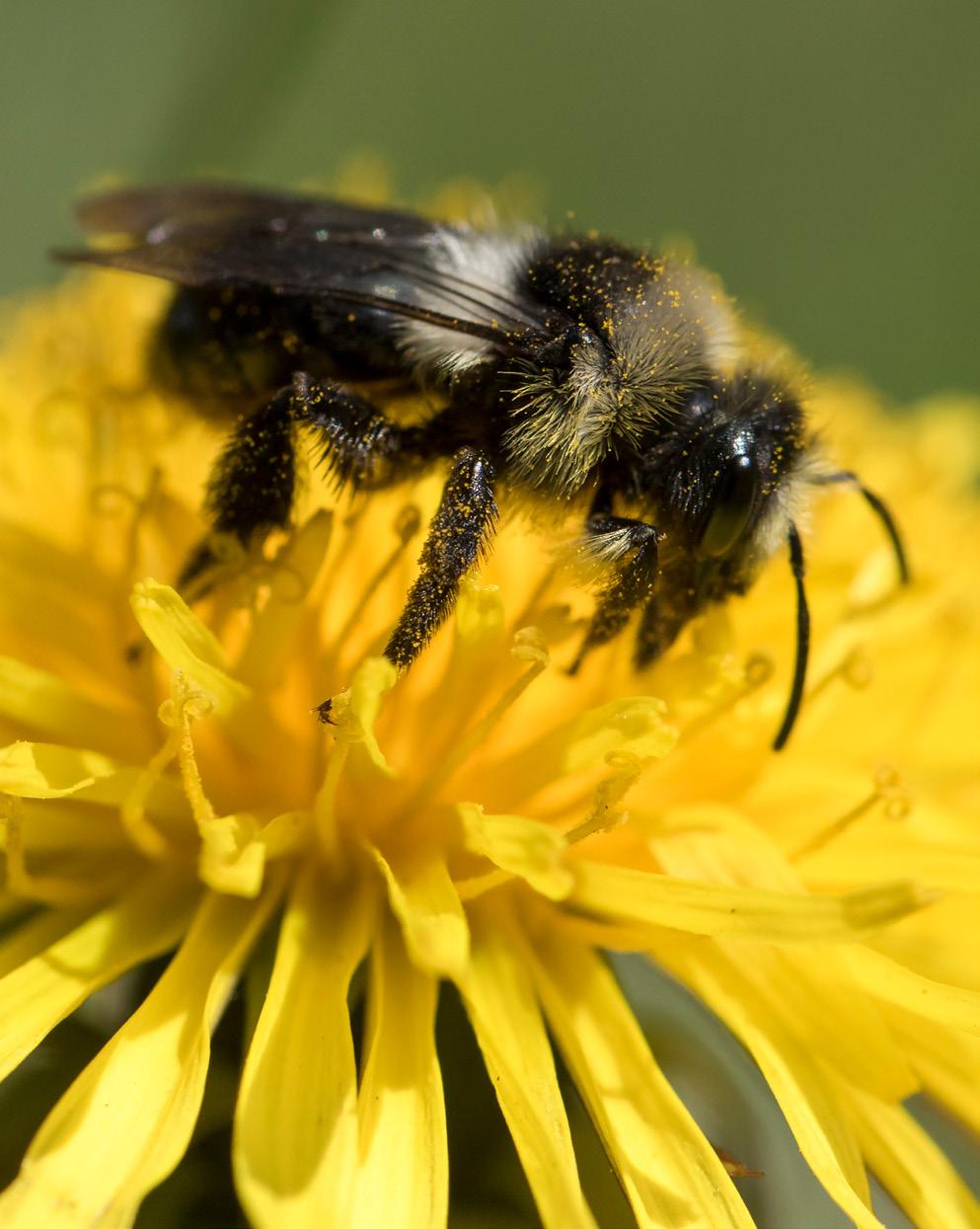
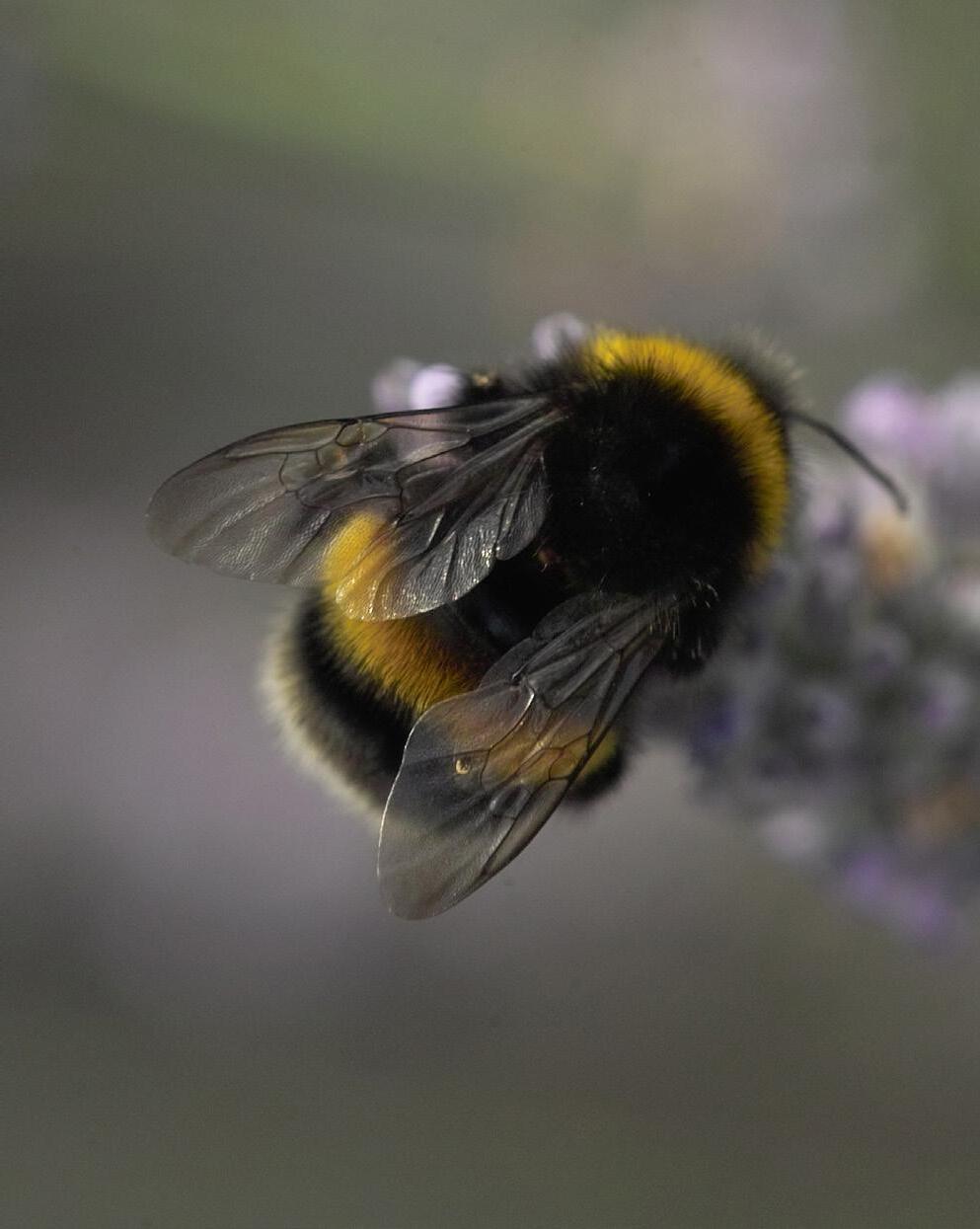
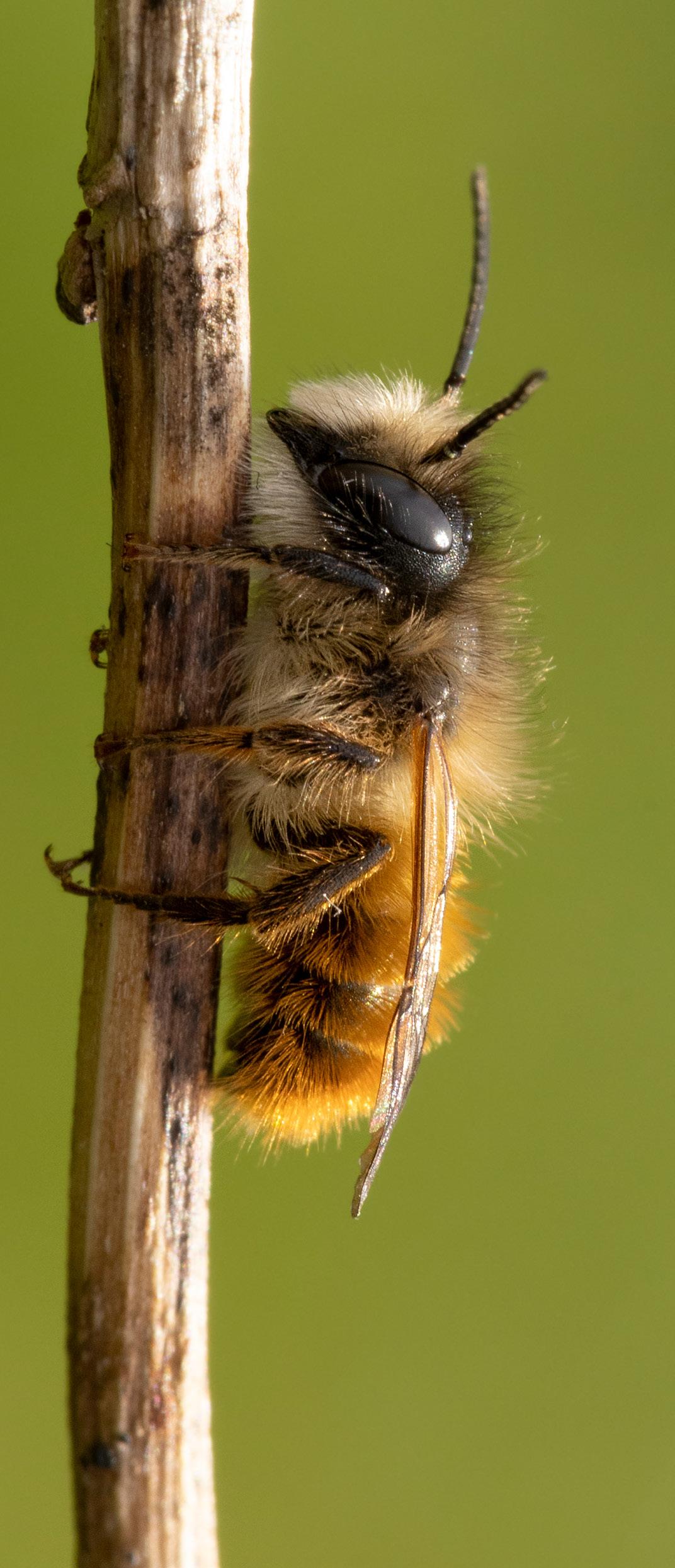
CASE STUDY:
Neonicotinoids
After many years of regulatory backsliding, the UK Government announced in December 2024 its intention to bring forward a “complete ban on bee killing pesticides” with legislative options that would legally prevent the future use of three specific neonicotinoids – clothianidin, imidacloprid and thiamethoxam – following the authorisation of thiamethoxam for use on sugar beet in recent years despite a widespread ban in 201724. Thiamethoxam is lethal to insects, particularly bees – even a miniscule trace can disrupt a bee’s ability to navigate and reproduce, significantly reducing the chance of survival.
The Wildlife Trusts welcomed this decision, having campaigned strongly against these “emergency” authorisations for the past 5 years – not just because of the significant harms to the environment, but because they undermine farmers who do not want to use beekilling pesticides. In 2024, 40% of sugar beet growers chose not to use the chemical Thiamethoxam despite its authorisation for use and so were actively disadvantaged – The Wildlife Trusts believe that stronger regulation can better protect nature-friendly farmers and prevent them from being undercut by more environmentally damaging practices.
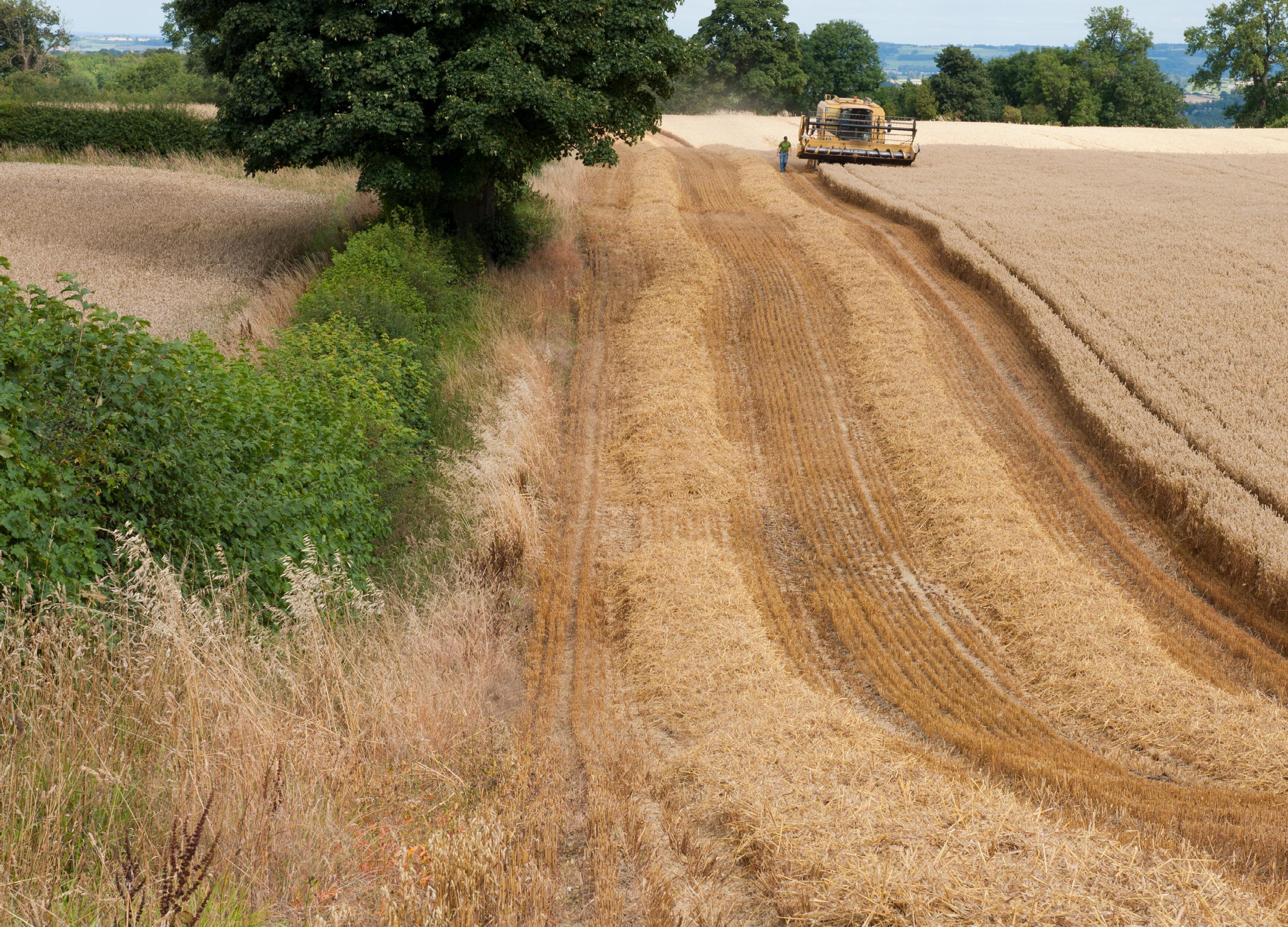
Reform supply chains, pay farmers fairly, and ensure processors and distributors are accountable for
environmental harms
The treatment and specifications which food buyers –including supermarkets, traders, processors, and the food service industry – impose on farmers make a stark difference to how farmers can act to protect nature and build resilience on and around their farm. The whole food supply chain must be responsible for ensuring a nature friendly and climate resilient food system, share the costs of data collected to monitor progress, and the risks and rewards in the transformation25.
For this to happen we need stronger regulation of all supply chains to remove abusive practices and investment in more diverse and more rewarding supply chains. The Groceries
Code Adjudicator which regulates the top 14 Retailers needs to have more powers of enforcement for the Codes and less of a simple compliance monitoring role. It needs to work very closely with the new Agriculture Supply Chain Adjudicator at Defra to build up good practice in all chains and avoid apportioning blame in the wrong place.
We also need to invest in more and better routes to market, and the local and regional infrastructure needed including processing and storage, to provide nature friendly farmers with more options to trade and sell, gaining a fair income and providing consumers with more opportunities to buy more nature-friendly and sustainably produced food.
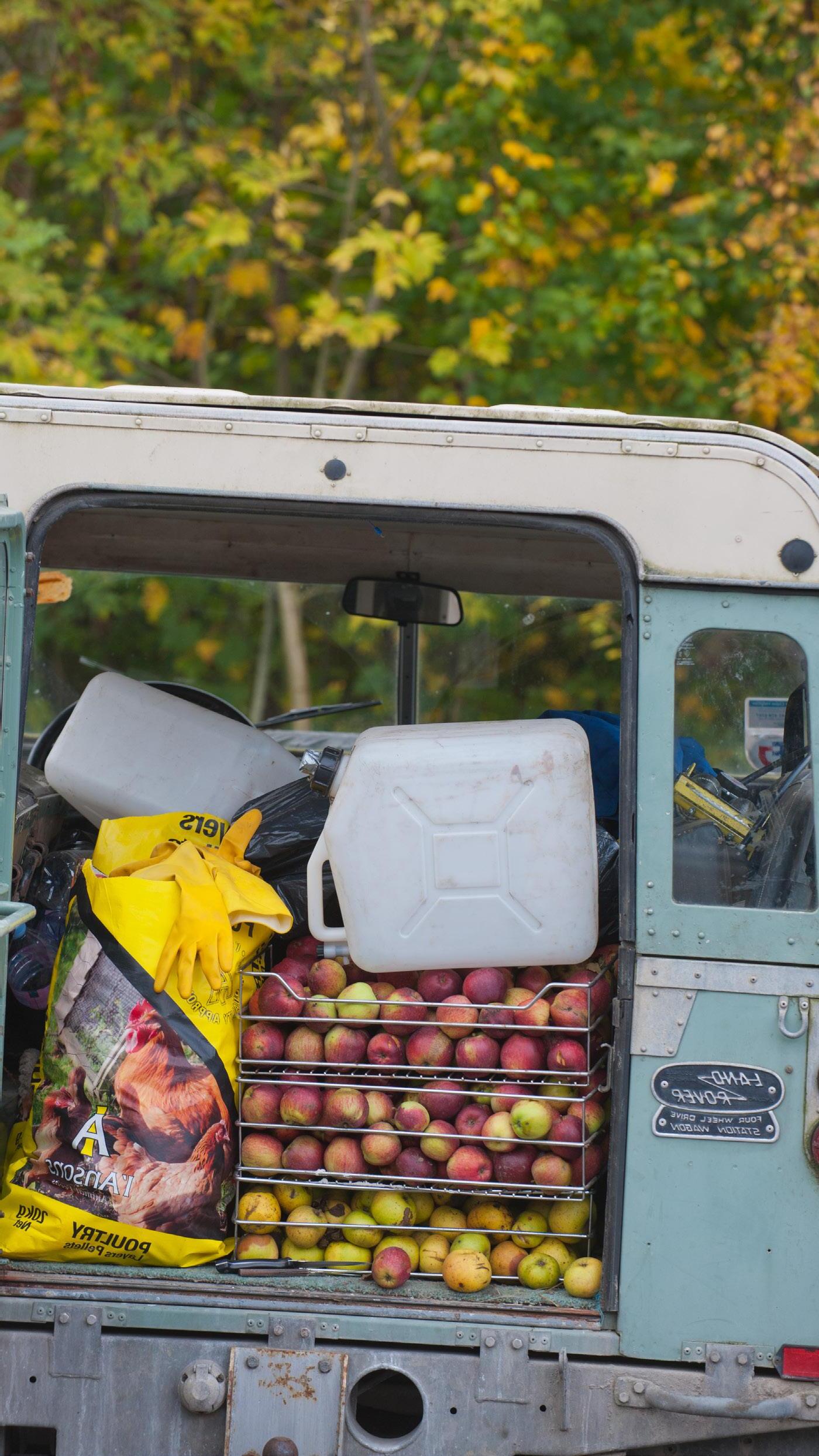
CASE STUDY:
M&S Farming with Nature
Working in partnership with retailer M&S, the Farming with Nature programme supported Wildlife Trust farm advisors from Herefordshire, Kent, Lincolnshire, Suffolk, Surrey and Sussex to provide advice on land management with fruit and vegetable growers who supply M&S26. The programme also supports group grower events to help growers connect with each other and share best practice.
As part of this project, M&S launched an in-field sensor trial with Agrisound to help farmers better support pollinators like bumblebees and increase crop yields. This technology allows them to track the number of pollinators visiting their farm in real-time and target specific interventions like differing wildflower densities for improving numbers, improving yields and quality of crops and benefitting the wider environment. Alongside this, Wildlife Trust advisors undertook surveys to establish a baseline of habitats present for wildlife, with further surveys in subsequent years recording how habitats increased and improved, helping to support even more wildlife.
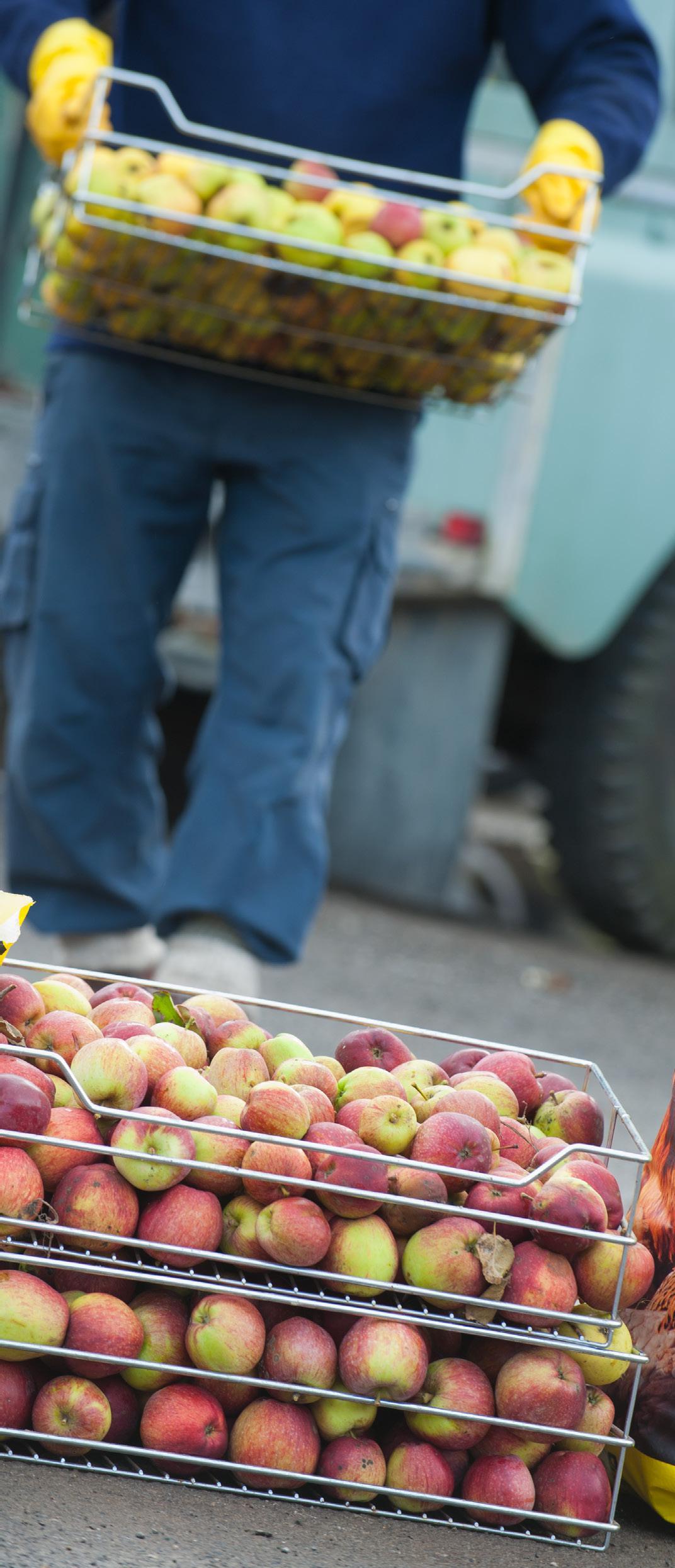
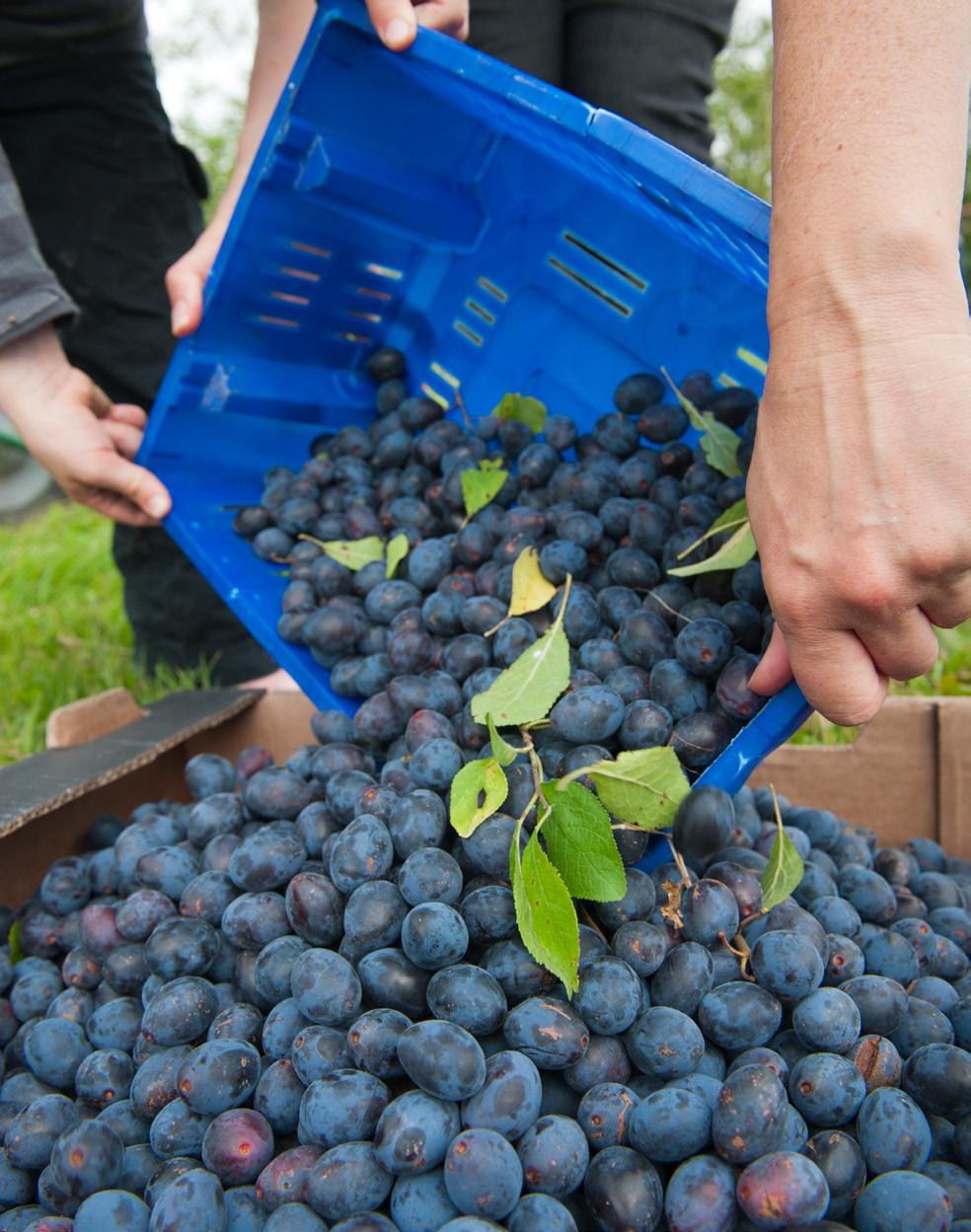
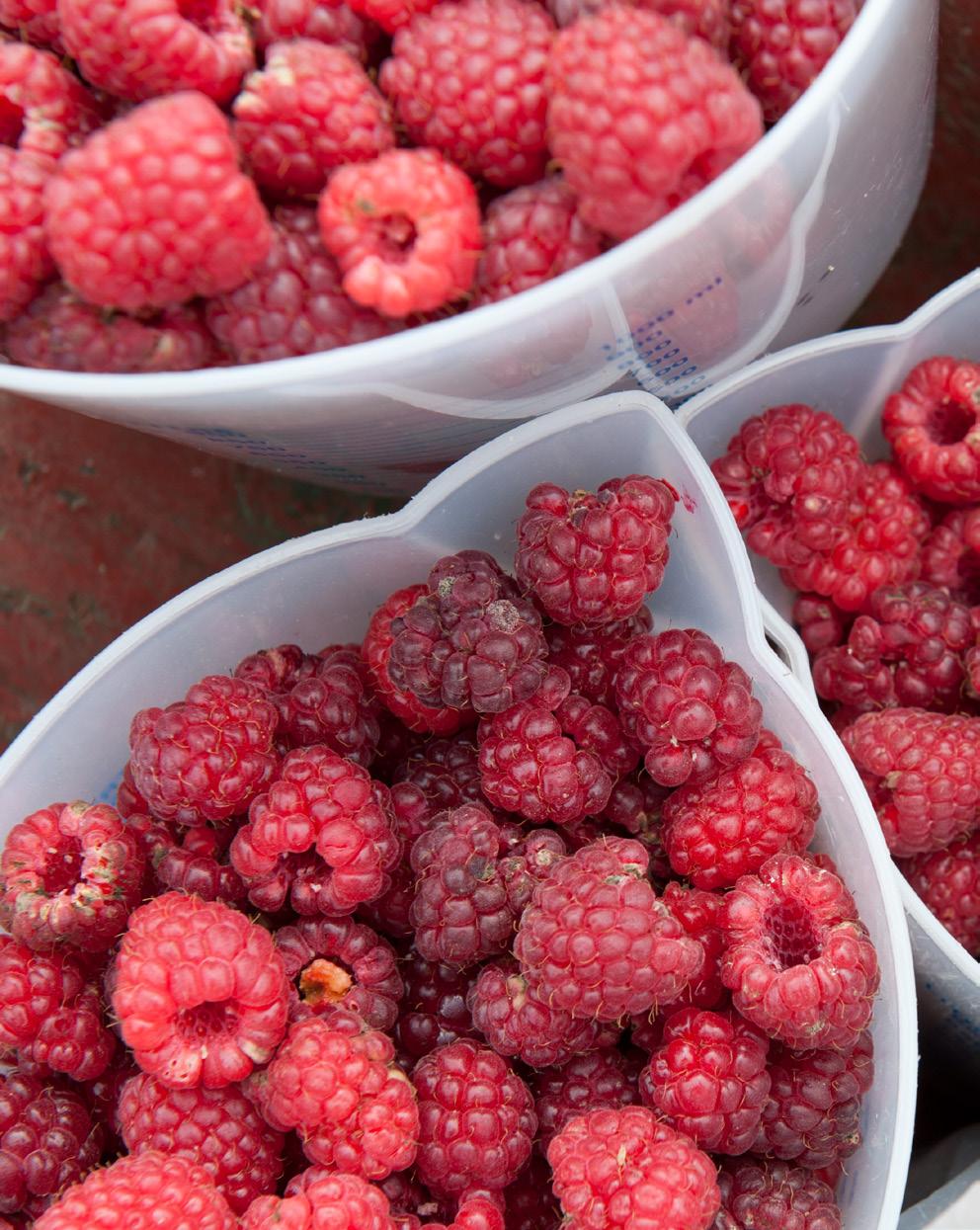

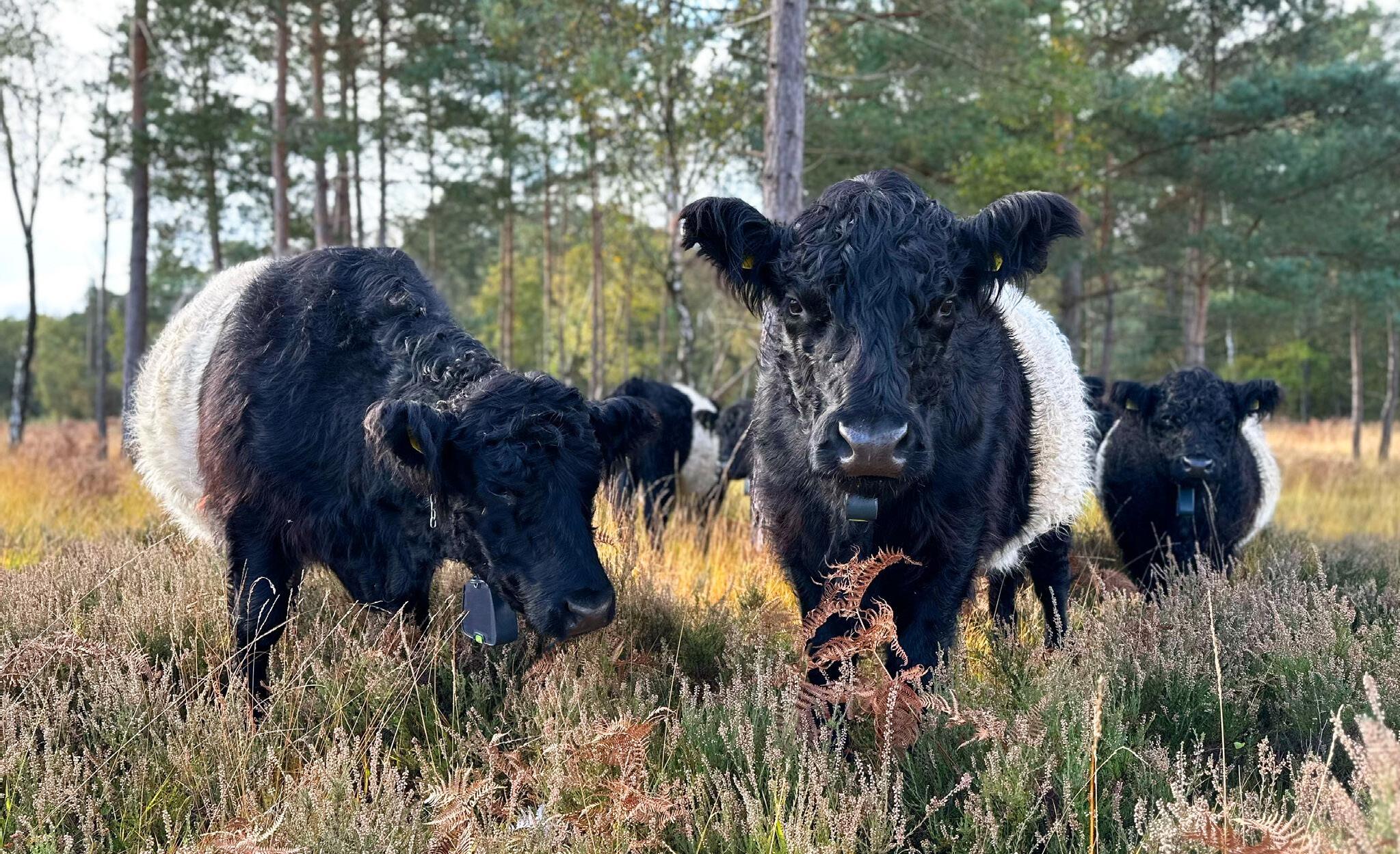
CASE STUDY:
Wilder Pentwyn
Pentwyn Farm, acquired by Radnorshire Wildlife Trust, is being restored with a 30-year vision to bring nature back in full, making space for local food production, holding back water and providing opportunities for income generation27. The management will be using low input and extensive farming, with high welfare livestock – Belted Galloway beef - sold locally, to restore natural processes and put nature in the driving seat.
An additional key feature is a vegetable, fruit and nut market gardening business, which will provide an opportunity for a new entrant to farming, as well as agroecologically produced, healthy fresh food for local shops and other outlets, helping link to community and raise awareness of nature’s role in good farming. Many Trusts are actively involved in similar local growing projects to help connect people with the food they eat and support healthier diets.
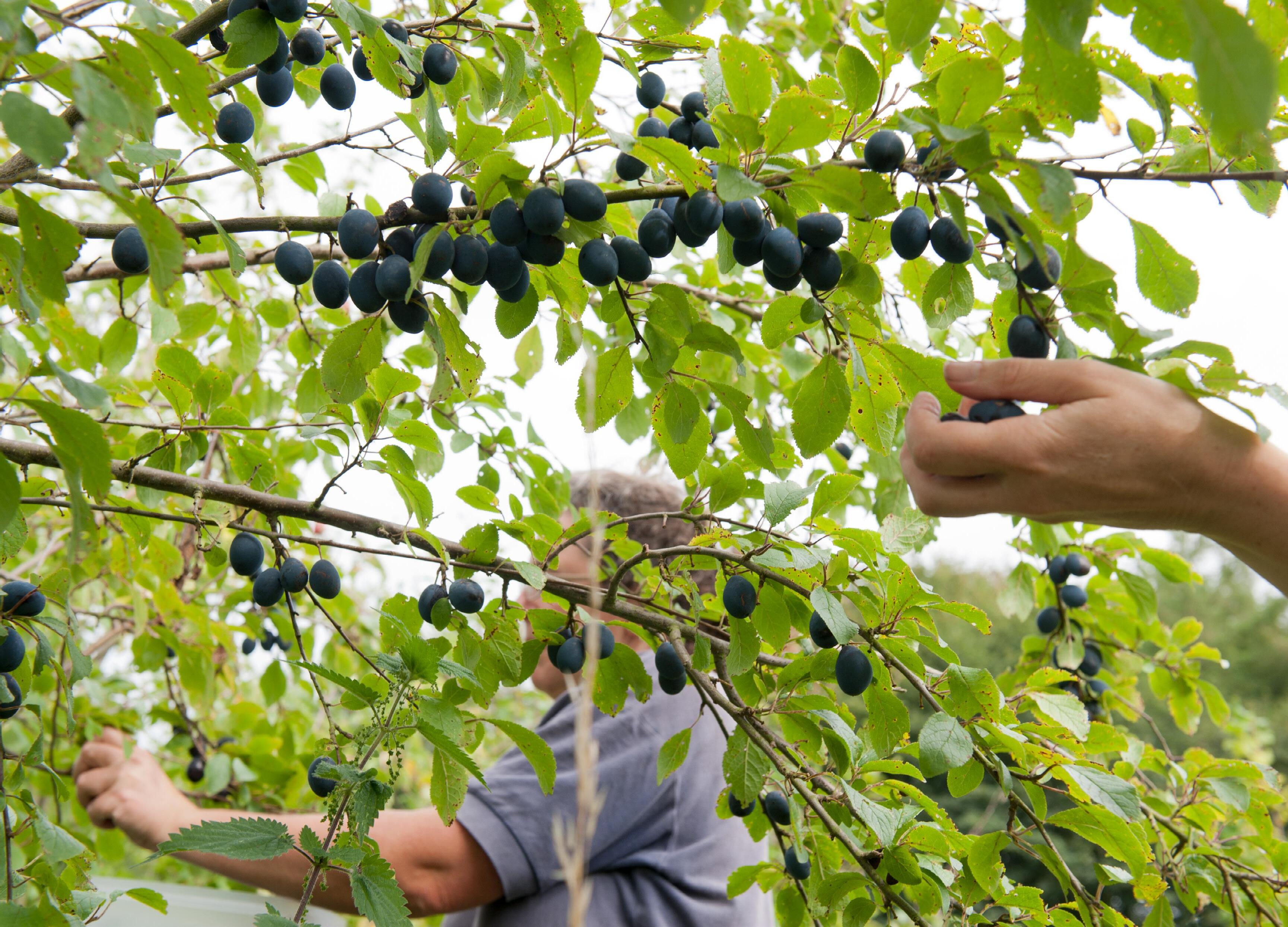
Adopting nature-positive and climateneutral diets
The widespread adoption of agroecological and regenerative farming practices combined with an increase in land use change for nature’s recovery will require shifts in dietary trends in the UK. Current intensive livestock management practices dependent on huge amounts of bought-in feed and the farm systems which deliver low-cost raw materials for highly processed foods can be harmful to the environment, both in the UK and abroad.
The Wildlife Trusts believe there is a role for sustainably managed livestock in farming systems. Livestock often play an important role in nutrient cycling and are increasingly being reintroduced into arable rotations to create more mixed farm systems. Livestock can also deliver benefits for biodiversity when managed appropriately whilst also producing high quality food, and are indeed important for the management of some of our best habitats for nature.
However, managing livestock in these systems will not produce enough animal products to meet the current unsustainable demand for meat and dairy in the UK.
Heavily processed foods using lowest cost raw materials are also part of the problem as they rely on uniform, low cost ingredients including oilseeds, grains and proteins. These cheap commodities are produced in large monocultures using heavily industrialised methods across the globe.
Therefore, to achieve goals for nature and climate across the food system, there will have to be a shift to more sustainable dietary choices in the wider public, with more plants, less yet more sustainably-produced meat and dairy products, less food waste, and healthier, less processed foods. This approach has multiple benefits - for nature and the environment, for public health, and for farmers gaining a greater share of the food pound.
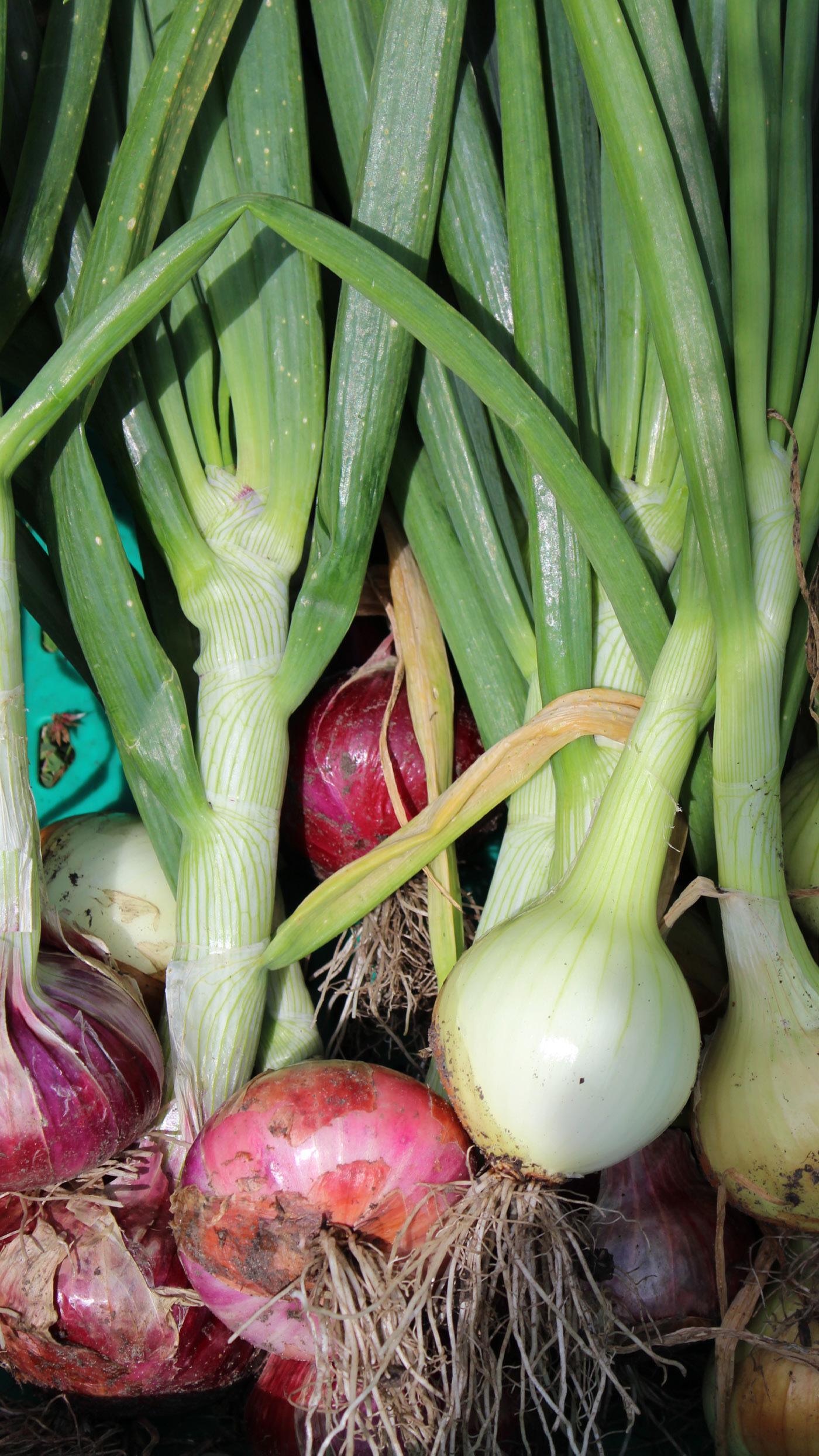
CASE STUDY:
Conservation grazing
A third of a 900 acre estate on The Isle of Wight is managed as a rewilding project by Hampshire and Isle of Wight Wildlife Trust. The Nunwell Estate, an historic piece of land below Brading Down on the Isle of Wight, is also home to Nunwell Home Farm28.
The farm is managed and run collaboratively by two young farmers who are committed to ecologically-minded land use and fighting climate breakdown through land and animal management practices. They farm 125 acres of the Estate with livestock enterprises in a share-farming framework with the land owner.
The farmers work closely with the Trust, using their cattle and pigs to manage the regeneration of the site. This drives positive ecological processes but also grows nutrient-dense Beef and Pork for sale to local customers. They keep Belted Galloway cattle for beef, native breed pigs for pork and hens for eggs, always working with nature to farm in a holistic and regenerative way which is kind to the land. The farmers are passionate about producing nutrient-dense and delicious food for the local community.
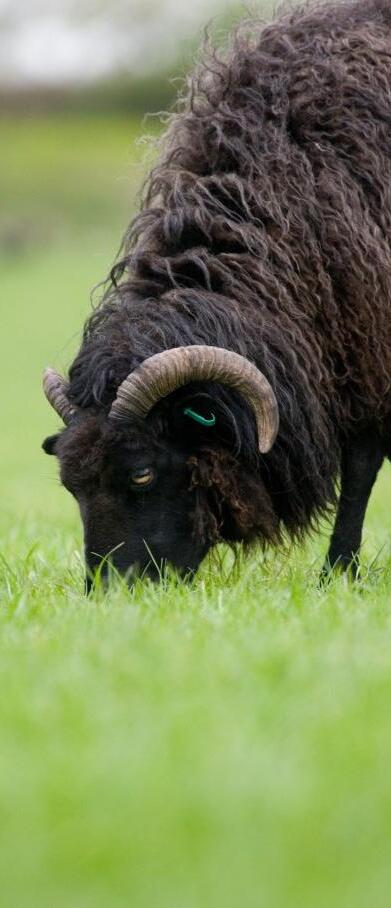


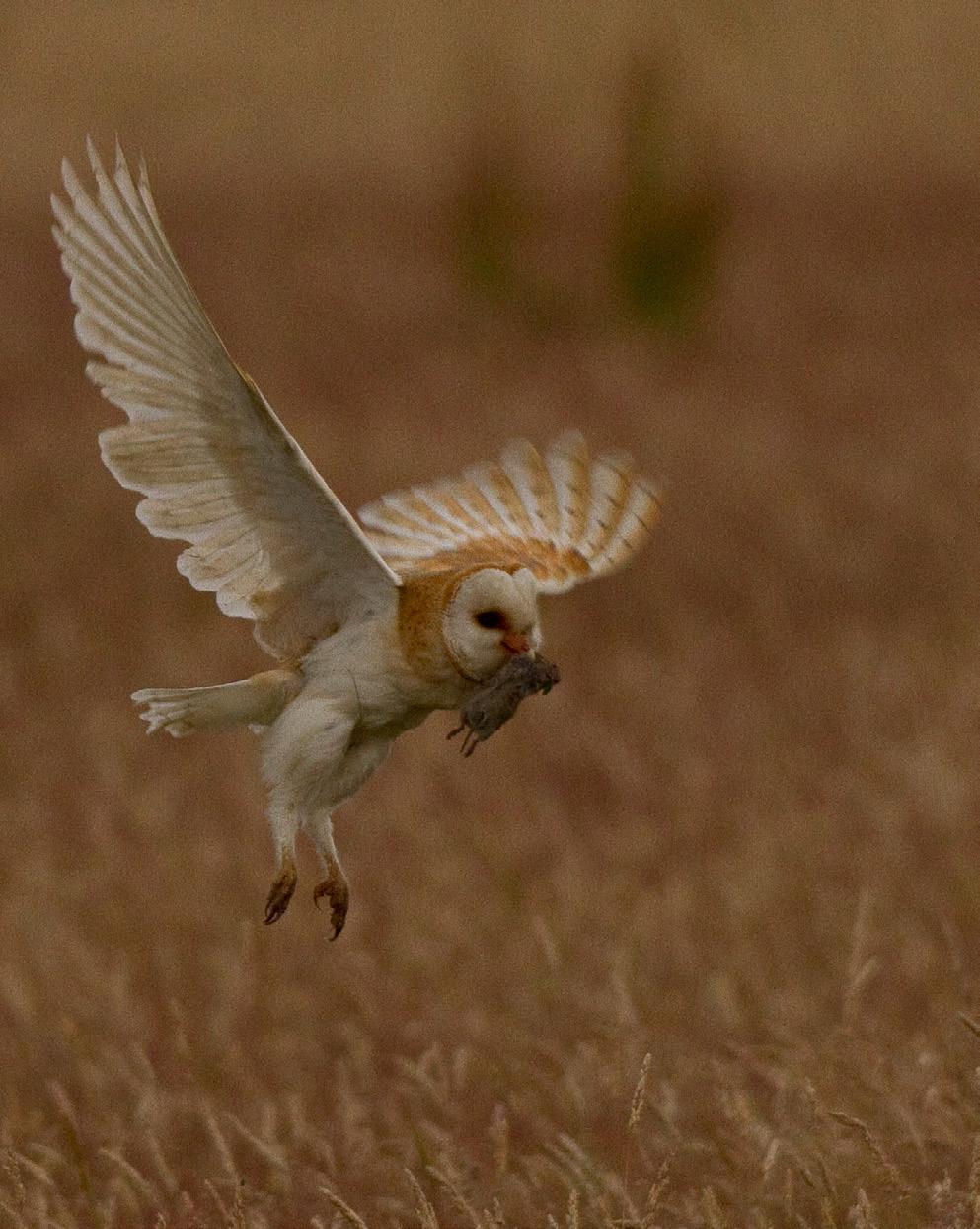
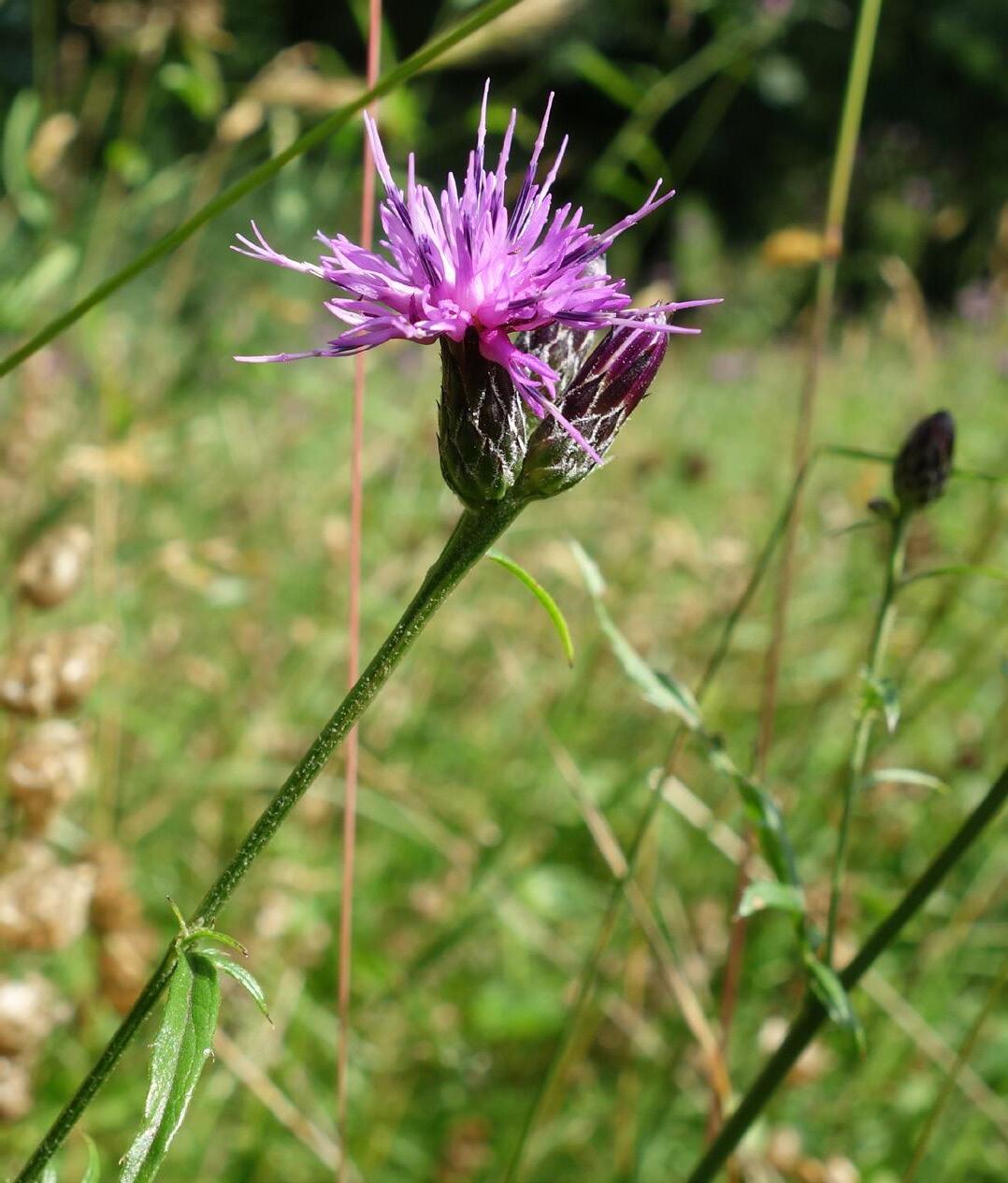

CASE STUDY:
Supporting Organic
The Wildlife Trusts work with all kinds of farmers, including organic ones like John Pawsey at Shimpling Park Farm in Suffolk. Organic is a system of farming and food production which aims to produce high-quality food, using methods that benefit the whole food system, from people to planet, plant health to animal welfare, with long rotations and no use of synthetic chemical pesticides and artificial fertilisers.
Evidence29 shows that organic farms have significantly more biodiversity – a meta-analysis found the abundance of earthworm populations was, on average, 78% higher on organic farms than other forms of farming and the mean species number of arable flora increased by 95%, that of field birds by 35%, and that of flowervisiting insects by 2%.
It is estimated that a 10% increase in UK organic land area could deliver a 3.64% decrease in total English agriculture-related greenhouse gas (GHG) emissions and reduce pesticide active ingredients application by 8.45%30. Organic farmers work to a strict set of standards to ensure that their farms sustain the health of soils, ecosystems, animals and people. Certification is legally required to grow, process or market organic products, and all organic farms and companies are inspected by a certification body, at least once a year.

Integrating technology & innovation into nature-friendly farming practices
Novel technologies which have the potential to improve yield, increase pest/pathogen resistance, improve drought tolerance, or provide novel sources of protein can be part of the solutions to the challenge of producing adequate sustainable food in a nature and climate crisis.
However, individual novel technologies must not be considered a “silver bullet” to solving the complex issues currently faced by our food and farming systems. If novel technologies are utilised to further increase intensification of the farmed environment or embed societal drivers of poor health, then it will only serve to exacerbate existing problems in our food systems.
With further research and an evidence-based approach, new technologies can be an important part of the solution, but only when incorporated within a wider, integrated approach to food production and land management alongside building and sustaining the ecological processes that agroecological systems rely on.
Crucially, new technology must be transparent, comprehensively peer reviewed, publicly consulted on, and subject to robust regulation following a hazard-based approach to decision-making founded on the Precautionary Principle. This regulation should put in place strict protections to prevent unsafe, concerning, or unknown technologies from being approved without appropriate scrutiny and consultation.
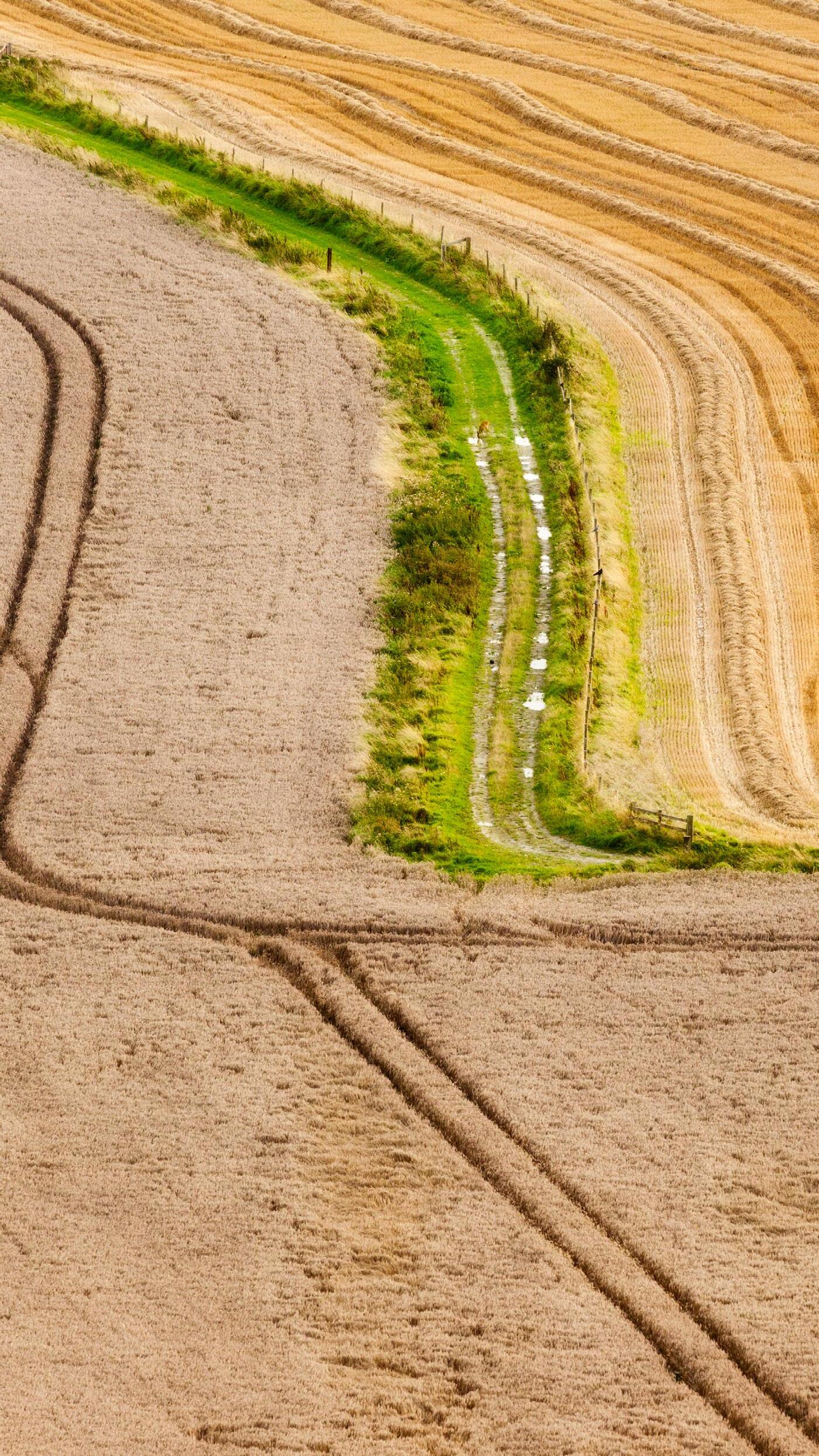
CASE STUDY: Paludiculture or ‘wet farming’
The rain-drenched lands of the UK offer perfect conditions for the formation of wetlands – sites where water and dry land meet and which are home to a wide range of species, from dragonflies to carnivorous plants31. Many wetlands are peat-forming and lowland peat soils in particular are vital carbon stores and can provide rich and unique nature habitats if restored by rewetting.
However, many peat soils have been degraded by drainage, intensive farming, and peat extraction. Wildlife trusts, including in Lincolnshire and Lancashire are working with farmers to explore how they can protect lowland peat through rewetting soils whilst still producing an income from the land. Crops being trialled include Typha (Bulrush) to produce alternative to plastic puffer material, as well as biomass and some vegetables. Lancashire Wildlife Trust’s Winmarleigh carbon farm is a pioneering project that is working to restore the carbon storage capacity of lowland agricultural peatlands.
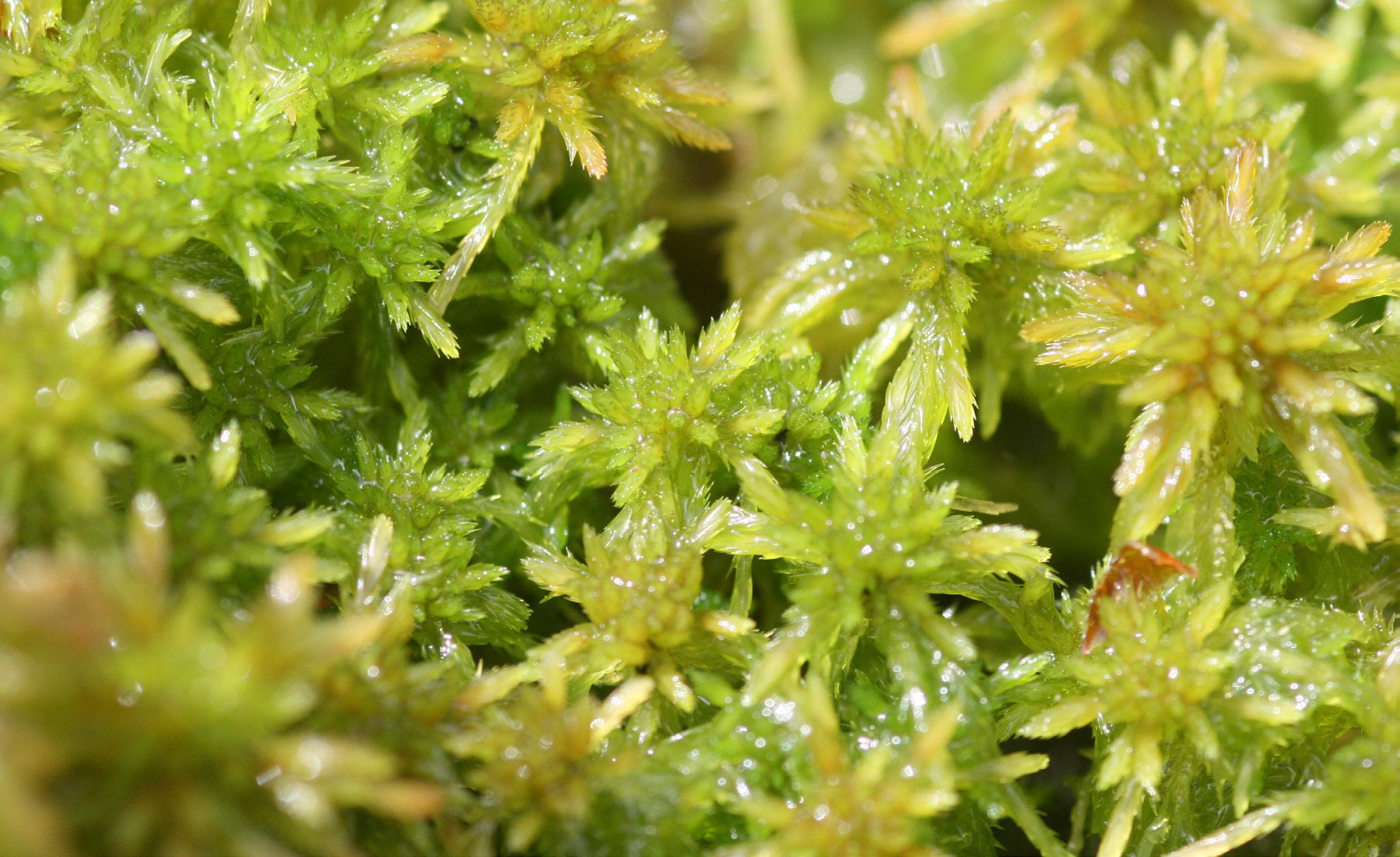
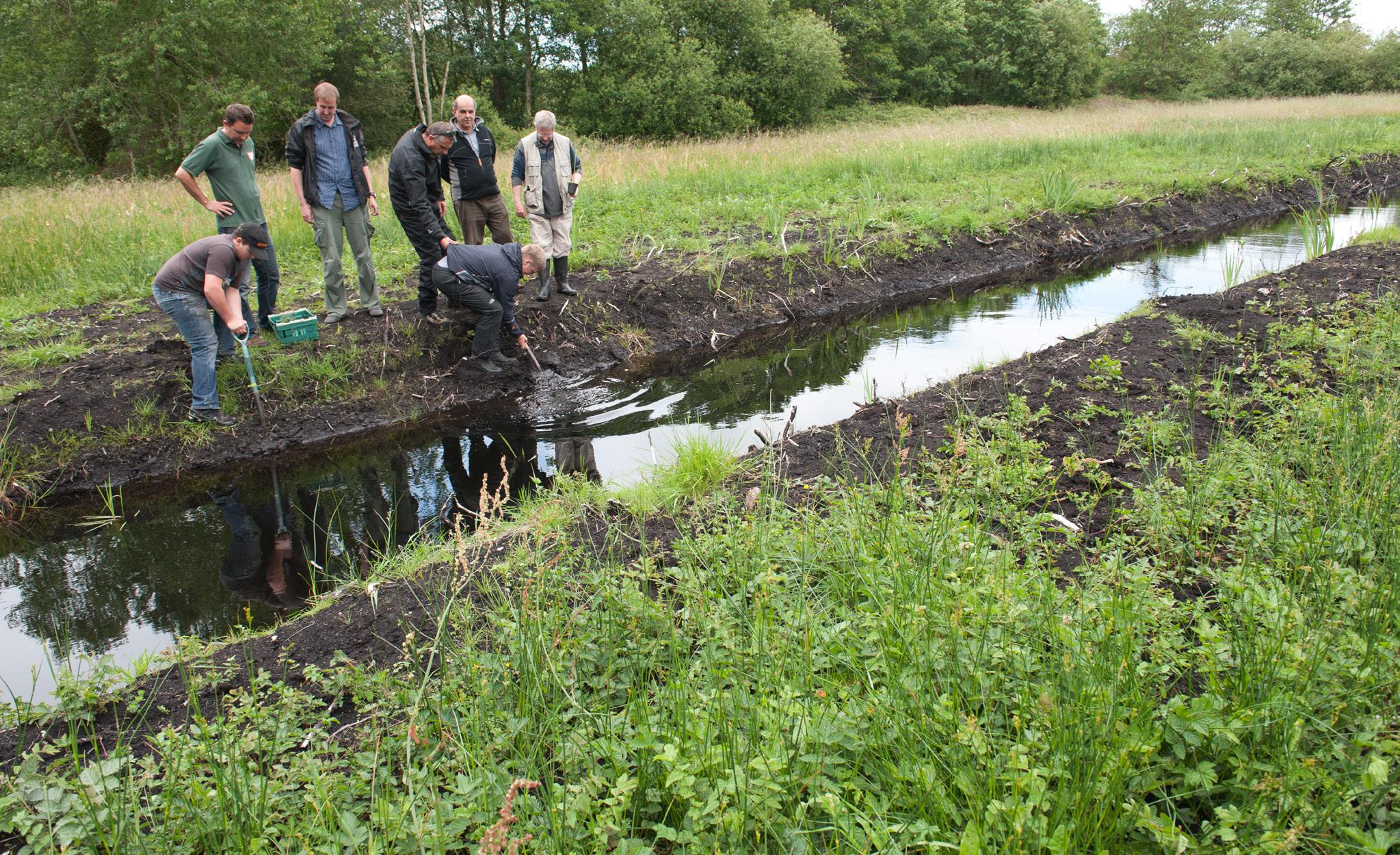
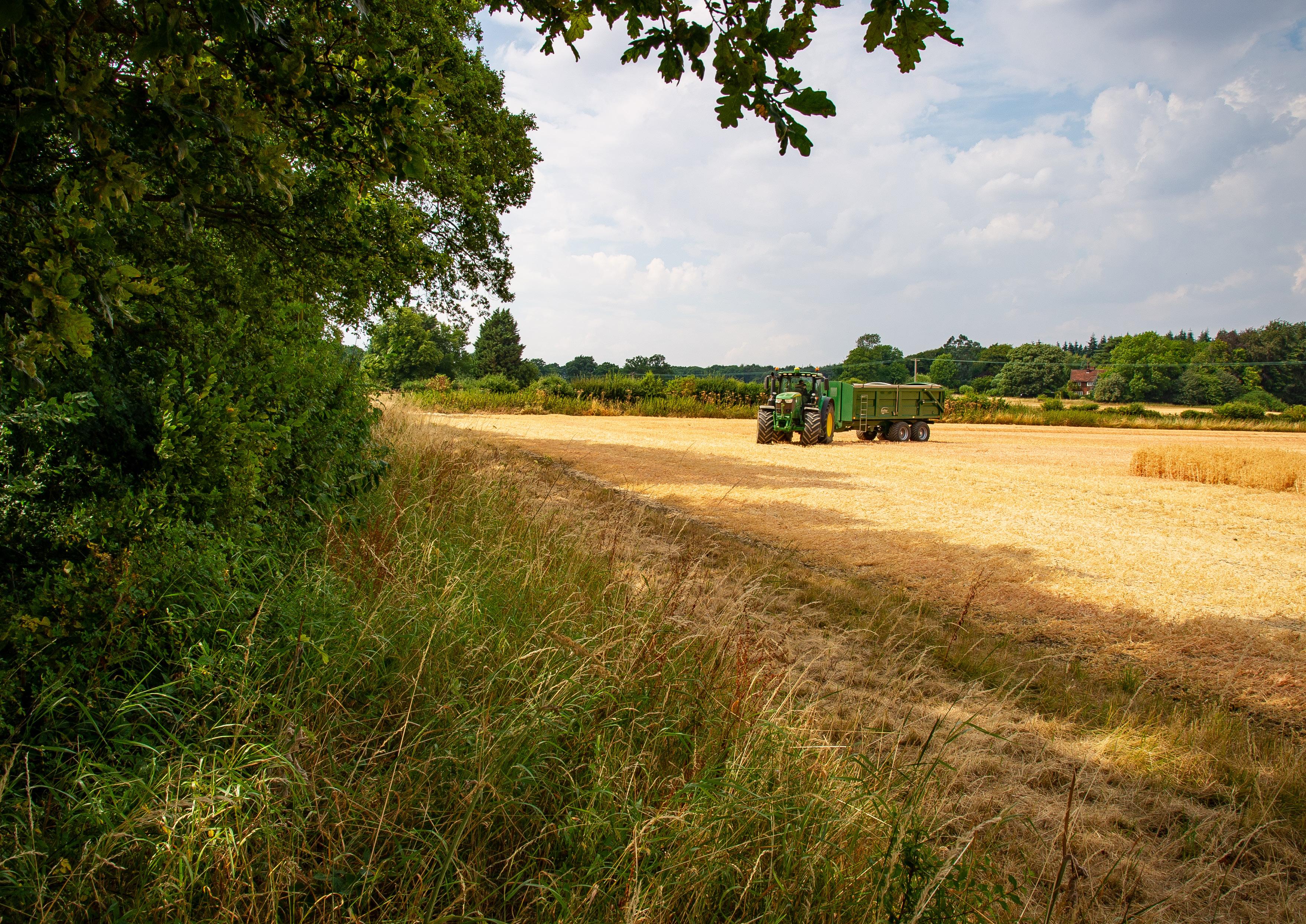
References
1. The Wildlife Trusts. Regenerative and Agroecological farming: How and why regenerative and agroecological farm practices can solve our nature and climate crises. https://www.wildlifetrusts.org/sites/default/ files/2025-06/Regenerative and Agroecological Farming.pdf
2. The Wildlife Trusts. Let Nature Help: How nature’s recovery is essential for tackling the Climate Crisis https://www.wildlifetrusts.org/sites/default/ files/2020-06/Let Nature Help.pdf
3. The Wildlife Trusts. Digging into our soils: How healthy soils underpin our food systems, climate and natural ecosystems. https://www.wildlifetrusts.org/sites/ default/files/2025-06/Soils_Discussion_Document_ HighRes.pdf
4. FIDRA. The Agricultural Use of Sewage Sludge. https:// www.fidra.org.uk/download/joint-position-papersludge/
5. The Wildlife Trusts. Farming at the Sweet Spot: How farming with nature can make you happier, healthier, and wealthier. https://www.wildlifetrusts.org/sites/ default/files/2023-06/Farming at the Sweet Spot_1.pdf
6. DEFRA. Making Space for Nature: A review of England’s Wildlife Sites and Ecological Network. https://webarchive.nationalarchives.gov.uk/ ukgwa/20130402170324/http:/archive.defra.gov.uk/ environment/biodiversity/documents/201009spacefor-nature.pdf
7. DEFRA. UK Food Security Report 2024. https://assets.publishing.service.gov.uk/ media/6756e355d89258d2868dae76/United_ Kingdom_Food_Security_Report_2024_11dec2024_
web_accessible.pdf
8. The Wildlife Trusts. Assessing the multiple benefits of Natural Flood Management. https://www.wildlifetrusts. org/sites/default/files/2025-03/2025_FEB_ NaturalFloodManagement_Full_Report_DIGITAL_ SPREAD.pdf
9. ScienceDirect. Pollination services in the UK: How important are honeybees? https://www.sciencedirect. com/science/article/abs/pii/S0167880911001046
10. The Wildlife Trusts. Moving towards the sustainable management of agricultural lowland peatlands. https://www.wildlifetrusts.org/sites/default/ files/2025-01/2025_Peatlands_Discussion_Paper_ WEB.pdf
11. RSPB, National Trust, The Wildlife Trusts. For farming, nature and climate: Investing in the UK’s natural infrastructure to achieve Net Zero and nature’s recovery on land. https://www.wildlifetrusts.org/sites/default/ files/2024-07/Scale%20of%20Need%20Report%20 July%202024%20FINAL.pdf
12. UK Parliament. Carbon capture: High degree of uncertainty whether risky investment by Govt will pay off. https://committees.parliament.uk/committee/127/ public-accounts-committee/news/205139/carboncapture-high-degree-of-uncertainty-whether-riskyinvestment-by-govt-will-pay-off/#:~:text=In%20a%20 report%20published%20today,and%20the%20cost%20 of%20living
13. The Wildlife Trusts. Nature-based Solutions Showcase: How Wildlife Trusts are restoring nature to address local and global issues. https://www.wildlifetrusts.org/sites/ default/files/2023-07/The Wildlife Trusts%E2%80%99 Nature-based Solutions Showcase 2023.pdf
14. Green Alliance. Jobs for a green recovery: Levelling up through nature. https://green-alliance.org.uk/
wp-content/uploads/2021/11/Jobs_for_a_green_ recovery.pdf
15. Forest Research. Valuing the mental health benefits of woodlands – In Brief. https://www.forestresearch.gov. uk/publications/valuing-the-mental-health-benefitsof-woodlands-in-brief/
16. The Wildlife Trusts. Temperate rainforest restoration: In partnership with Aviva. https://www.wildlifetrusts.org/ temperate-rainforest-restoration
17. The Wildlife Trusts. Jordans Cereals. https://www. wildlifetrusts.org/jordans-farm-partnership
18. Worcestershire Wildlife Trust. Caring for our Wild Pollinators: Farm Health Check. https://www. worcswildlifetrust.co.uk/sites/default/files/2019-08/ Farm-Health-Check-Form-2016.pdf
19. Fairness Foundation. Fair Rules, Fair Growth. https:// files.fairnessfoundation.com/fair-rules-fair-growth.pdf
20. Environment Agency. Environment Agency Chief Regulator’s report 2023-24. https://www.gov.uk/ government/publications/environment-agency-chiefregulators-report-2023-24/environment-agency-chiefregulators-report-2023-24
21. DEFRA. Latest water classifications results published. https://deframedia.blog.gov.uk/2020/09/18/latestwater-classifications-results-published/
22. National Atmospheric Emissions Inventory. Air Pollutant Inventories for England, Scotland, Wales and Northern Ireland: 2005-2022. https://naei.energysecurity.gov.uk/ reports/air-pollutant-inventories-england-scotlandwales-and-northern-ireland-2005-2022
23. Radnorshire Wildlife Trust. Wye Adapt to Climate Change? Project. https://www.rwtwales.org/wyeadapt-climate-change-project
24. The Wildlife Trusts. Deadly neonicotinoids ban must bring overdue respite for bees, say The Wildlife Trusts. https://www.wildlifetrusts.org/news/deadlyneonicotinoids-ban-must-bring-overdue-respite-beessay-wildlife-trusts
25. The Wildlife Trusts. A food systems approach to farming, nature, and health: A discussion paper. https://www.wildlifetrusts.org/sites/default/files/202503/A%20food%20systems%20approach%20to%20 farming%2C%20nature%20and%20health.pdf
26. The Wildlife Trusts. M&S. https://www.wildlifetrusts. org/m-and-s
27. Radnorshire Wildlife Trust. Pentwyn Farm - a vision for the future. https://www.rwtwales.org/our-projects/ pentwyn-vision-future
28. Nunwell Home Farm. https://www.nunwellhomefarm. co.uk/
29. FiBL. What organic farming achieves for environment and society – meta analysis provides comprehensive results. https://www.fibl.org/en/info-centre/news/ organic-farming-environment-society-meta-analysisresults
30. OF&G. OF&G white paper highlights benefits of 10% organic English farmed area. https://ofgorganic. org/news/of-g-white-paper-highlights-benefits-oforganic-land-use
31. The Wildlife Trust for Lancashire, Manchester & North Merseyside. Winmarleigh carbon farm. https://www. lancswt.org.uk/our-work/projects/peatland-restoration/ winmarleigh-carbon-farm
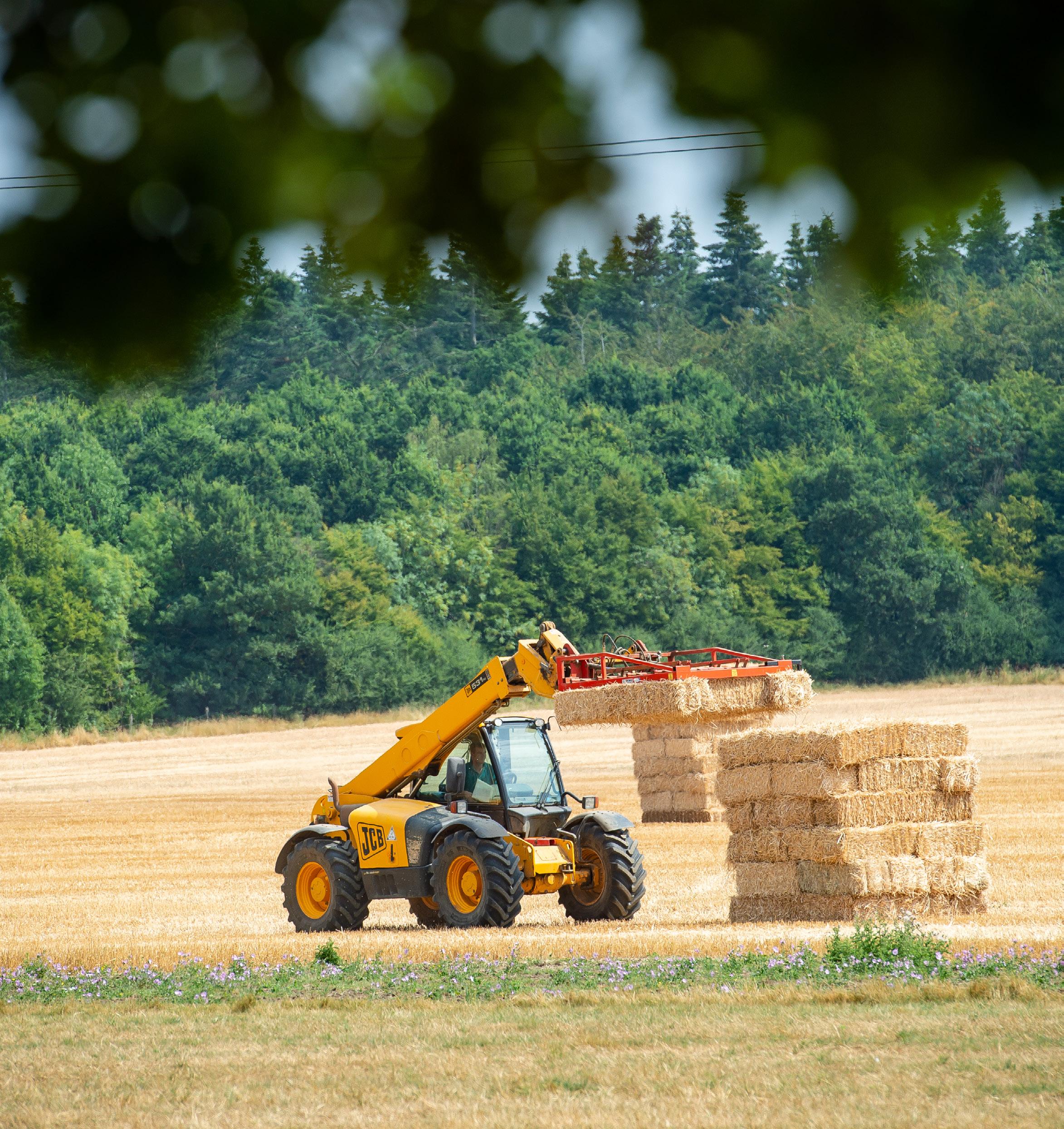
The Wildlife Trusts are a federation made up of 46 Wildlife Trusts and a central charity (the Royal Society of Wildlife Trusts). Each is an independent charity with a shared mission.
Help us achieve our vision of 30% of land and sea to be connected and protected for nature’s recovery by 2030... Get in touch...
• Join us as a member
• Remember us in your will
• Speak up for wildlife
• Volunteer your time
• Work with us
Find out more at wildlifetrusts.org/support-us
enquiries@wildlifetrusts.org instagram.com/thewildlifetrusts 01636 677711 x.com/wildlifetrusts wildlifetrusts.org youtube.com/thewildlifetrusts
